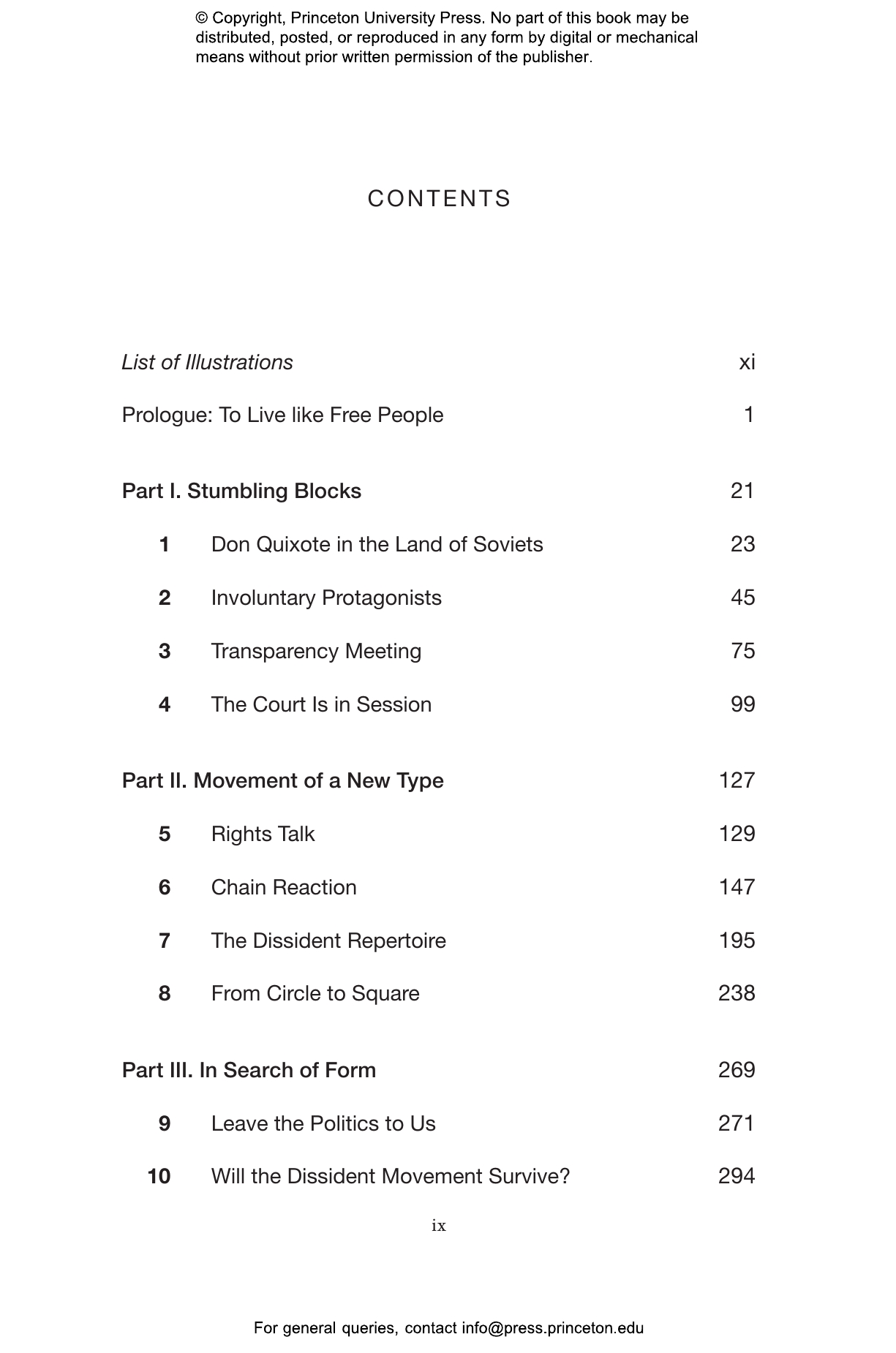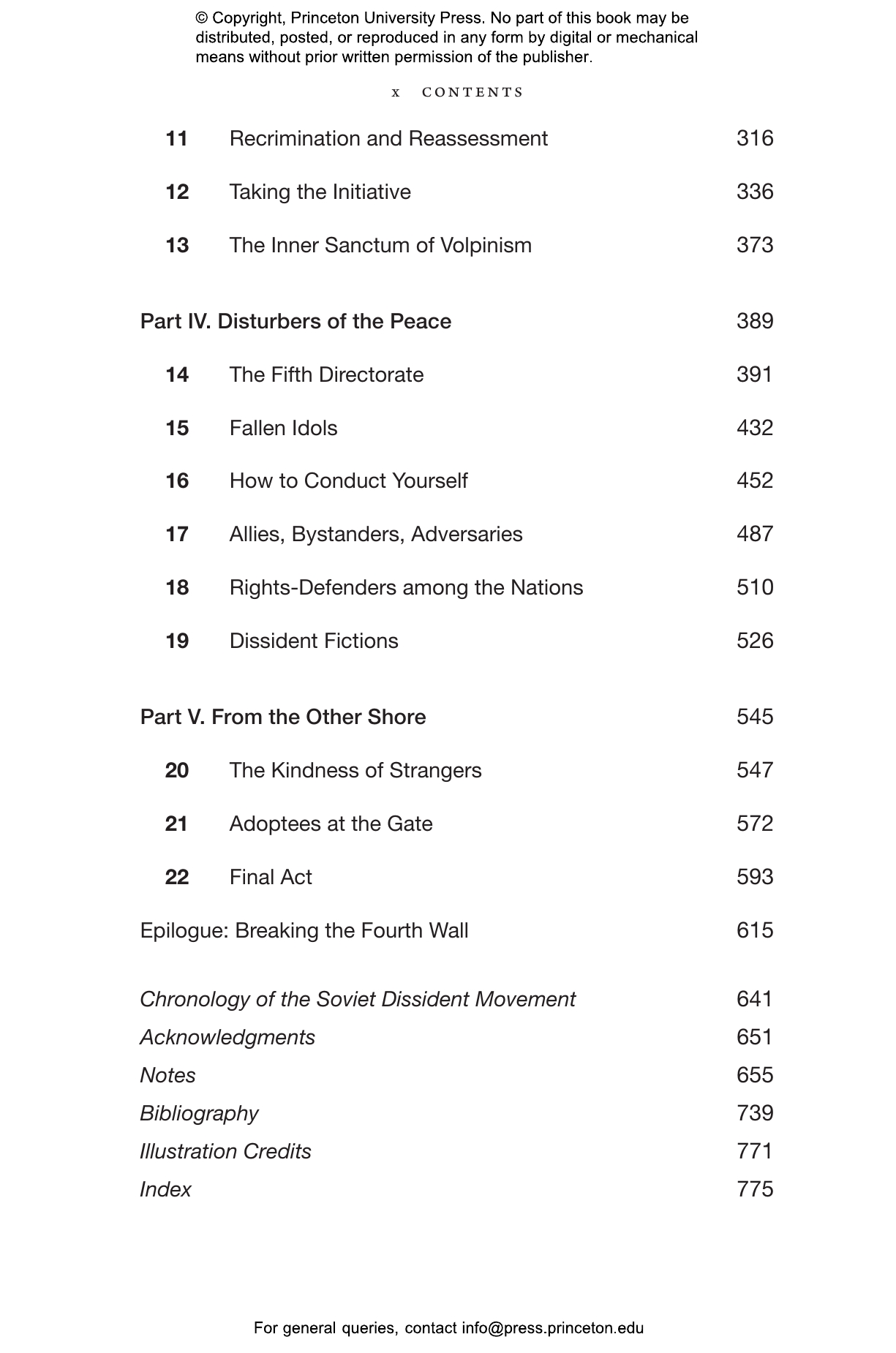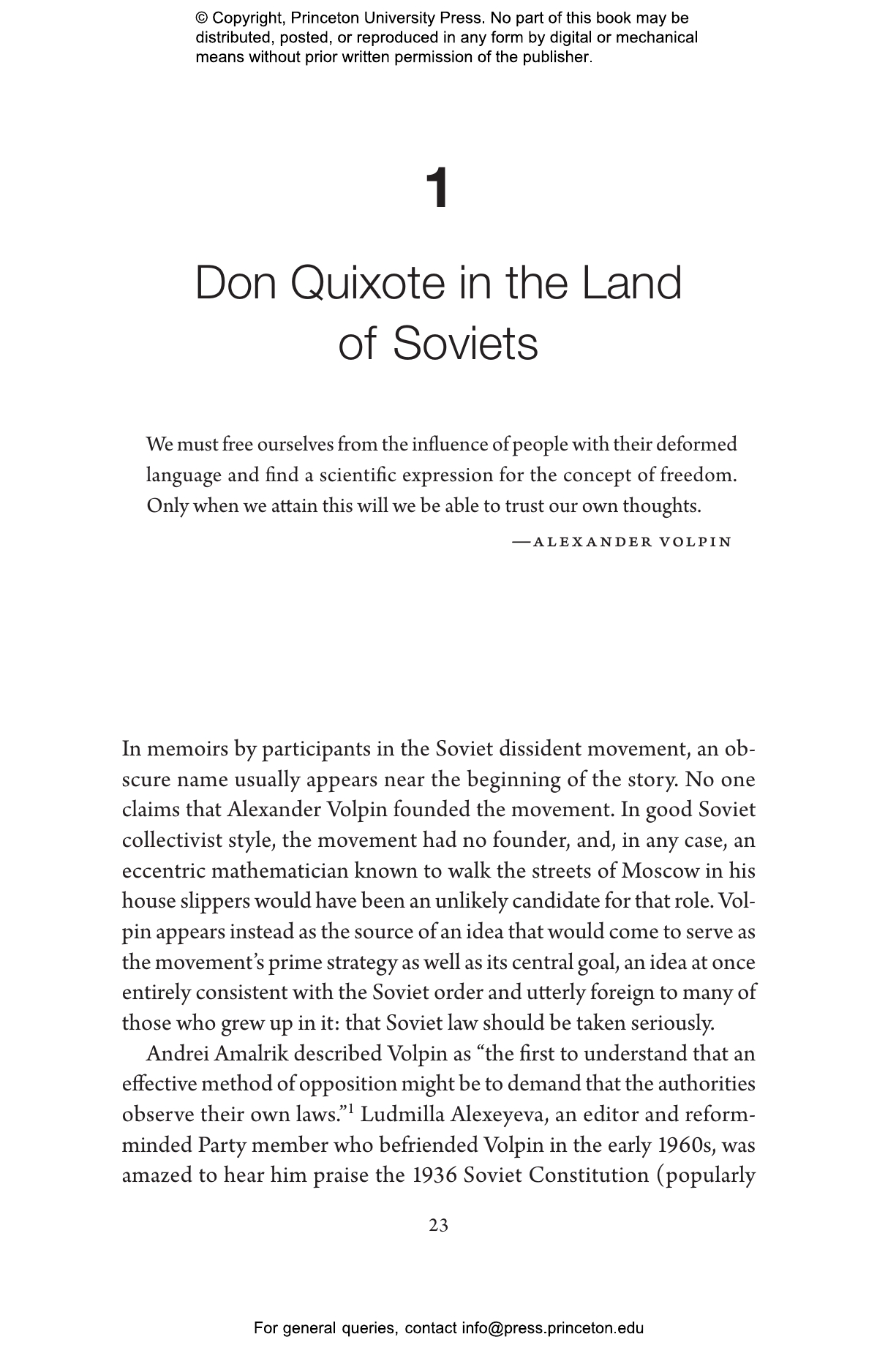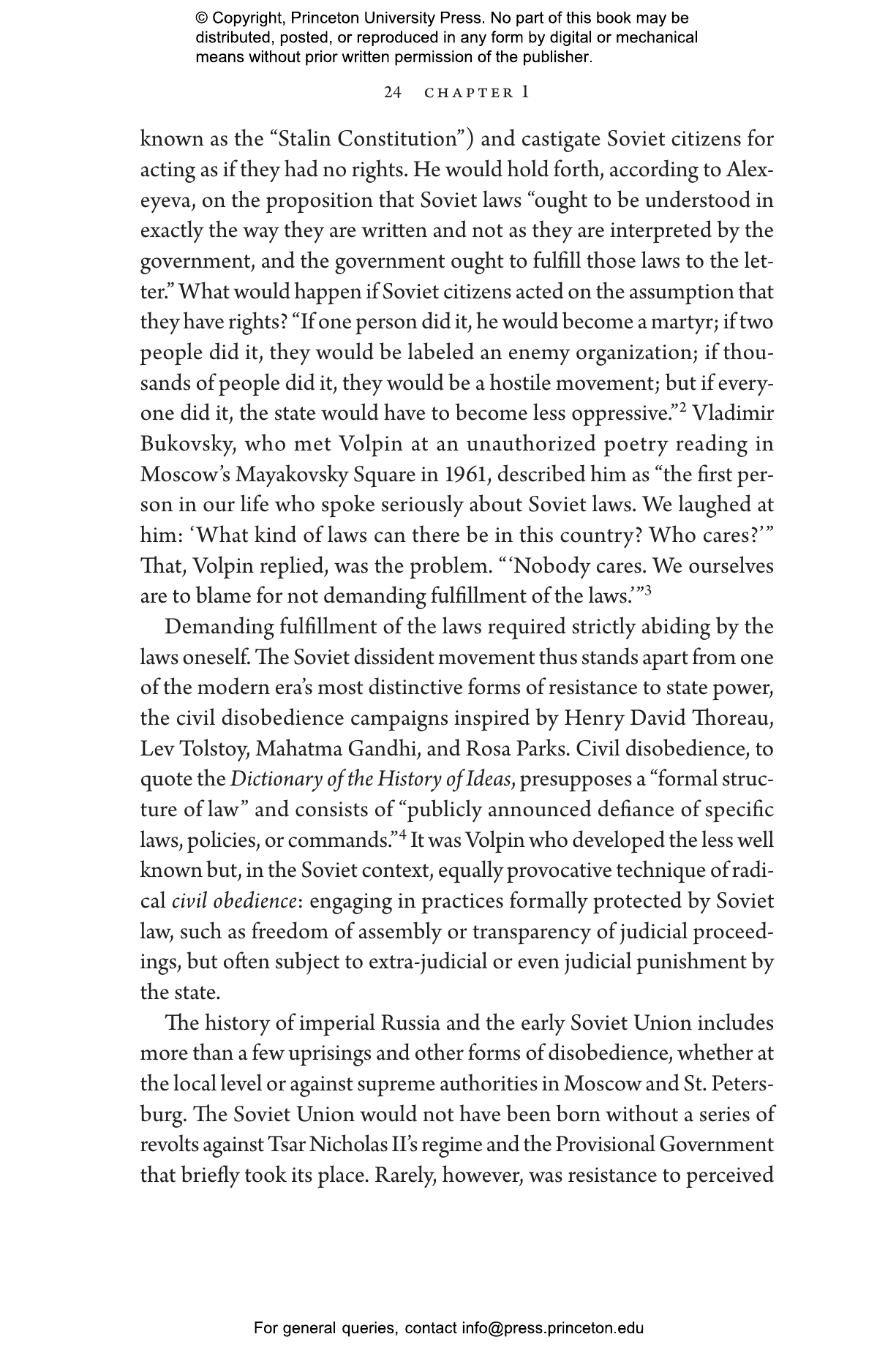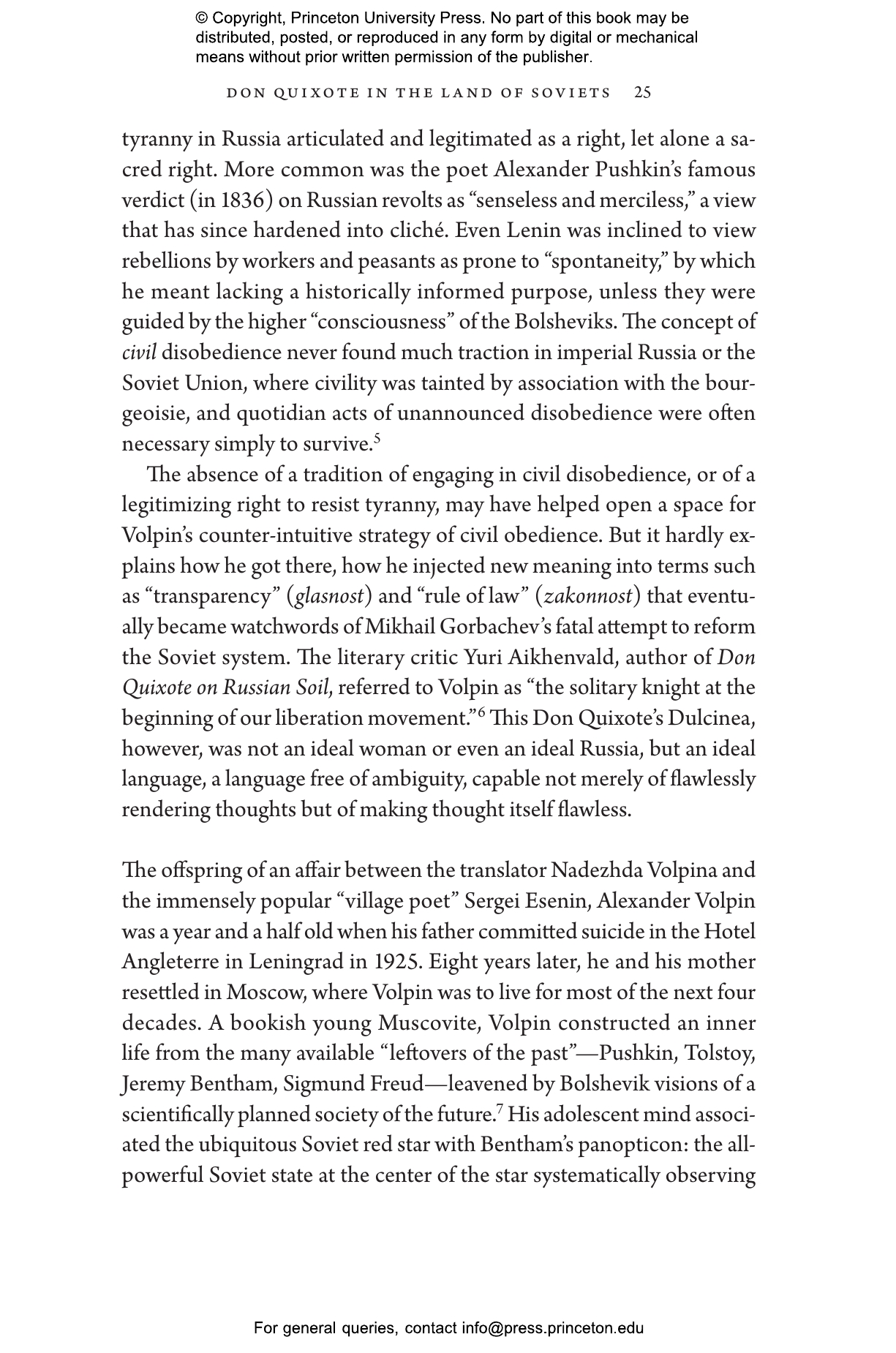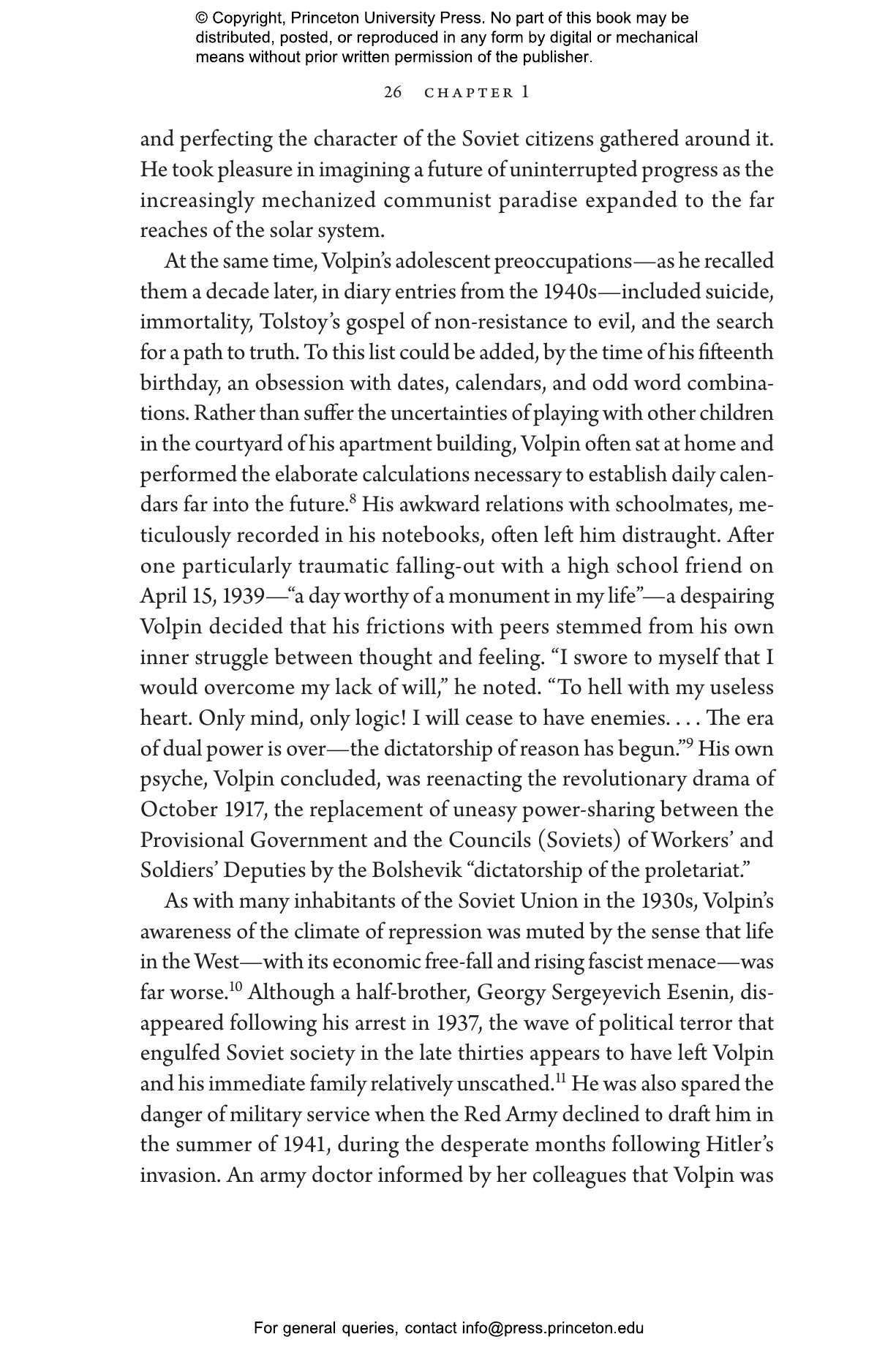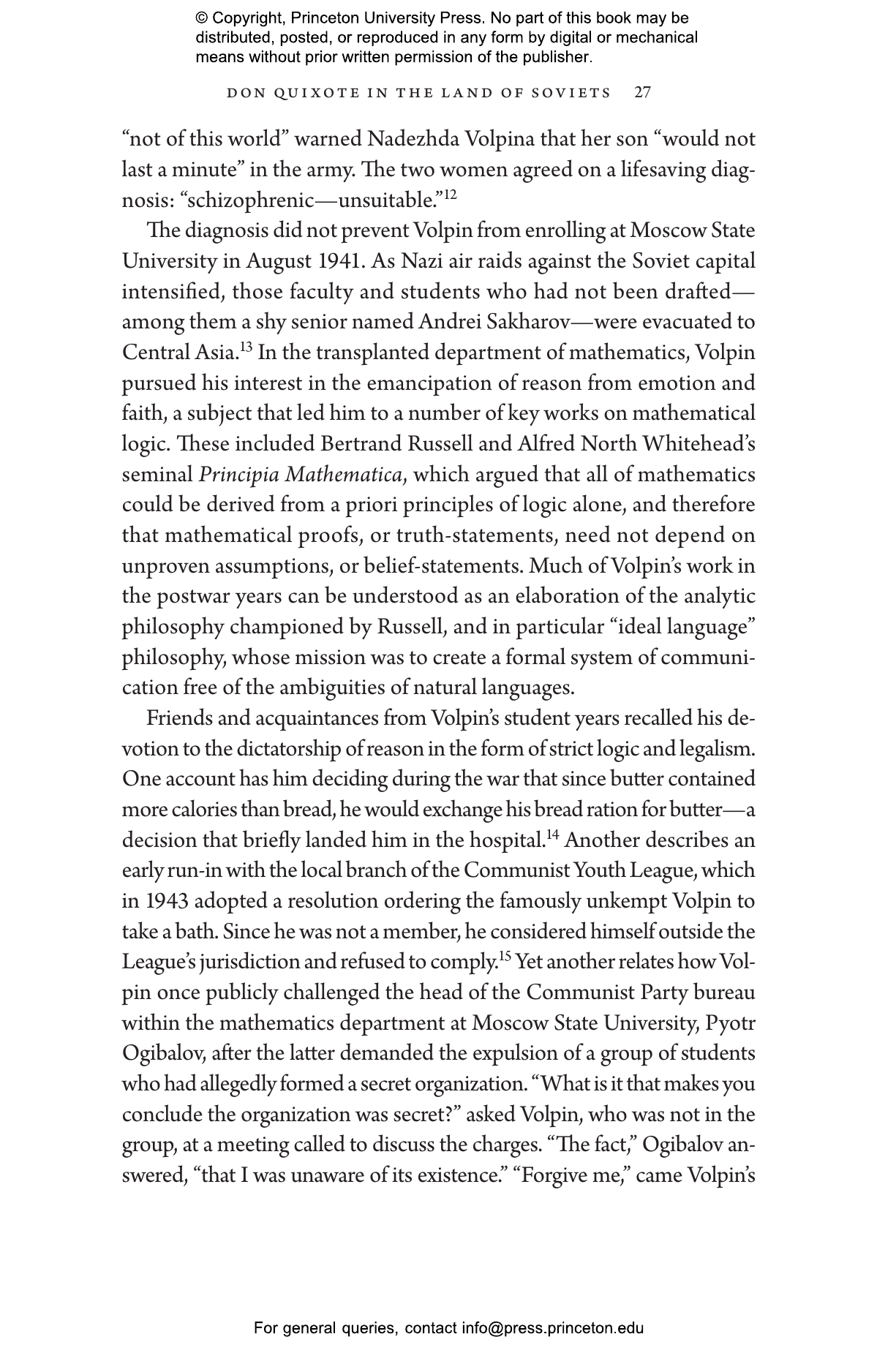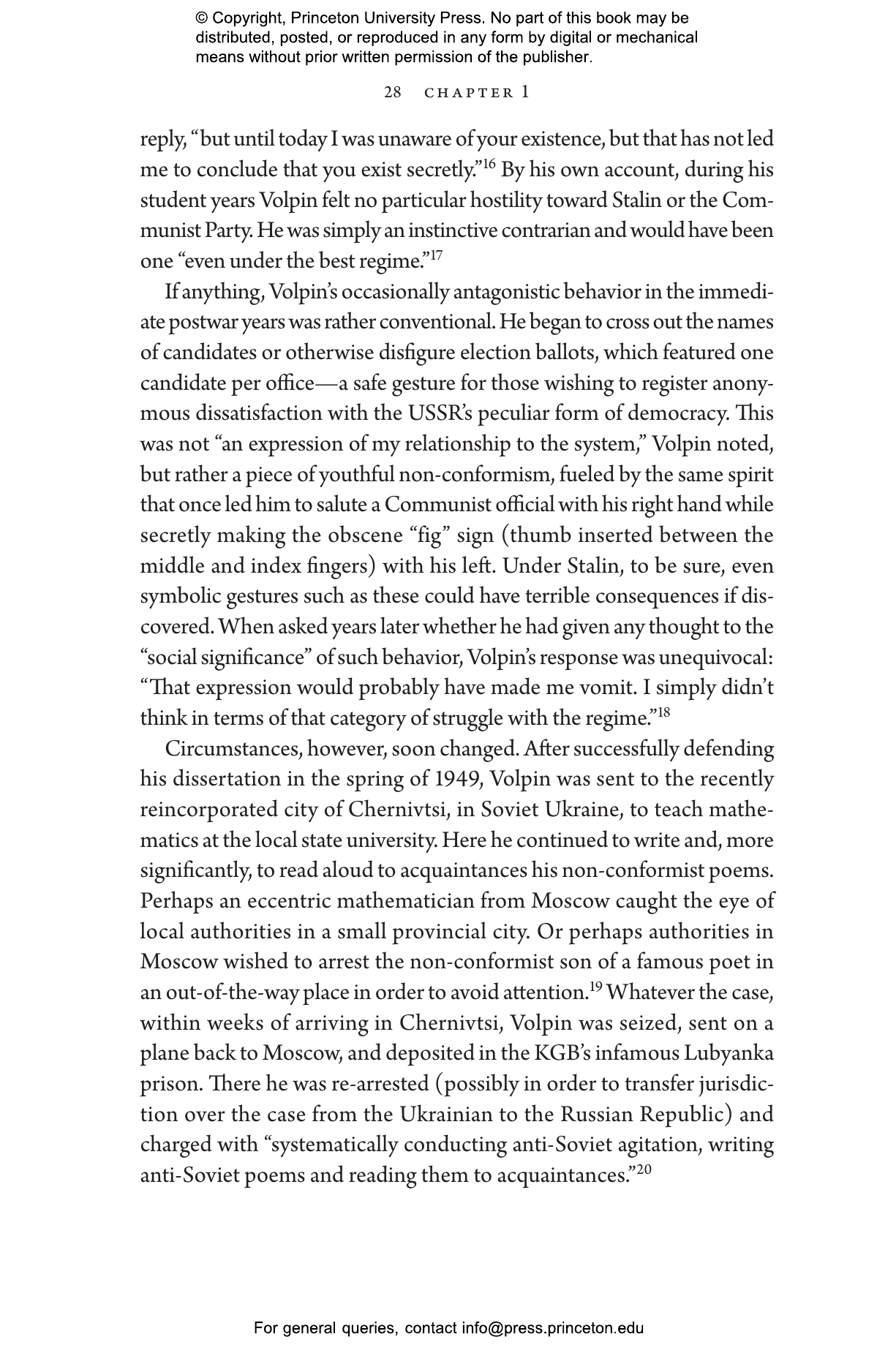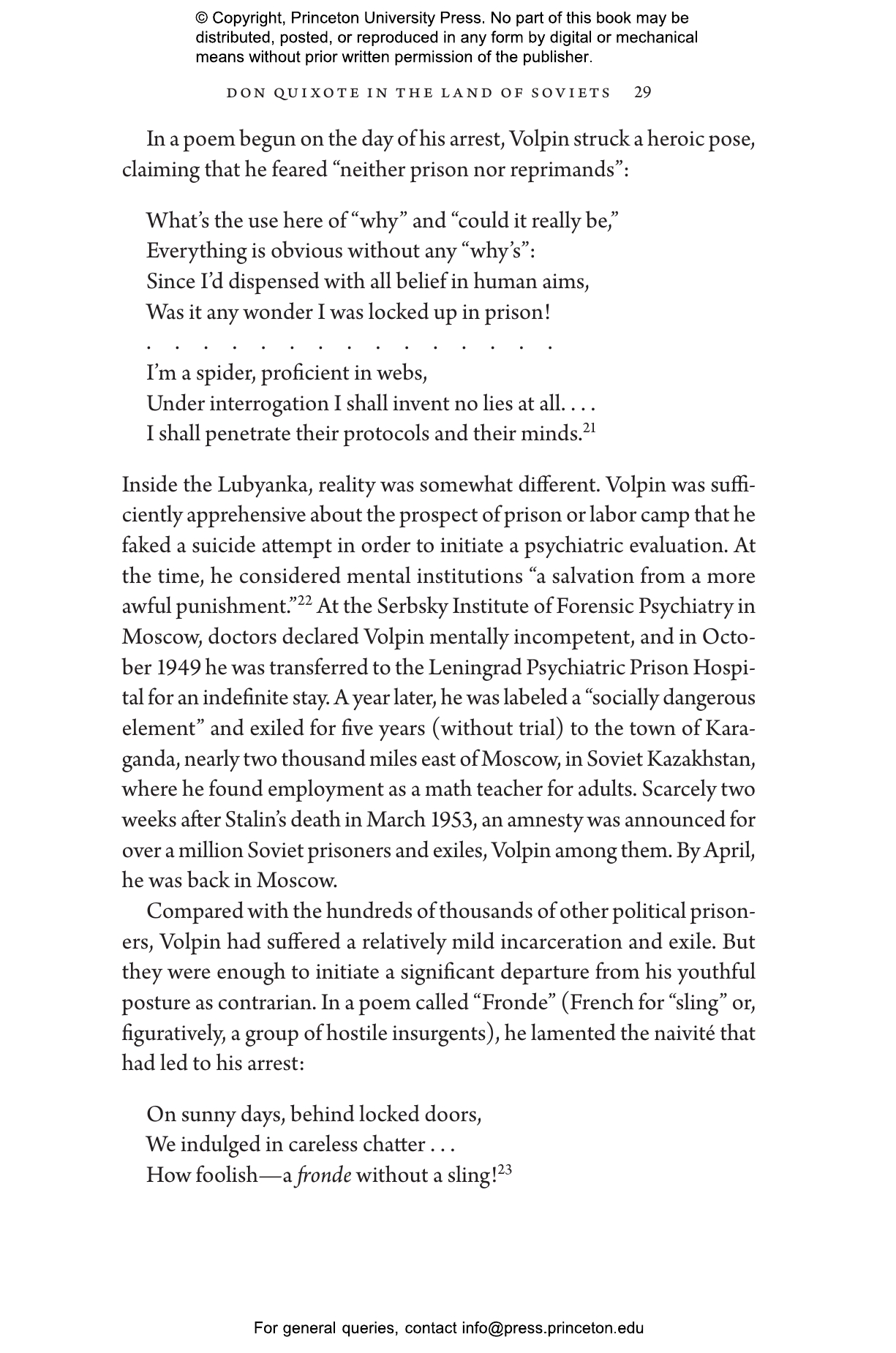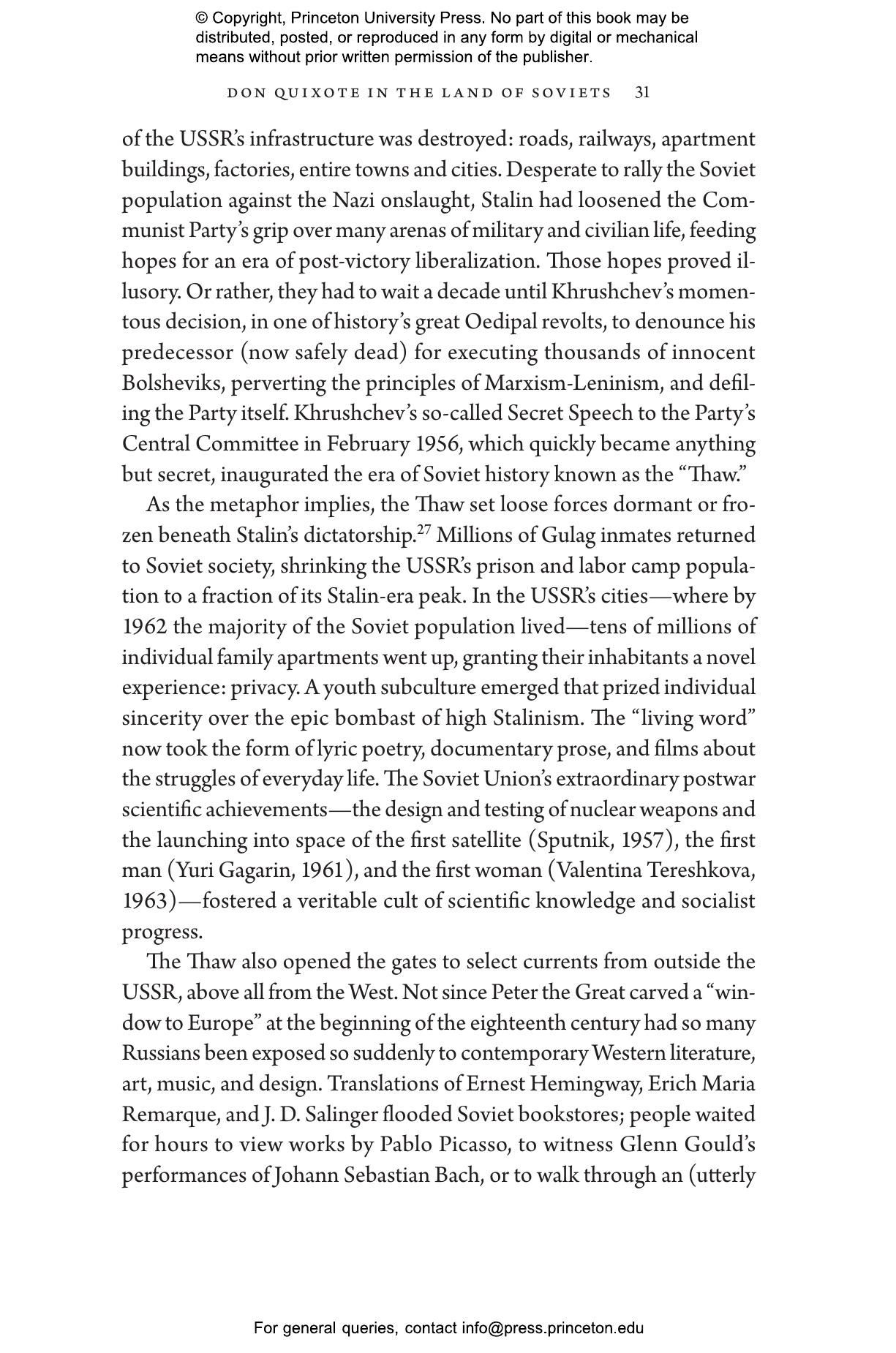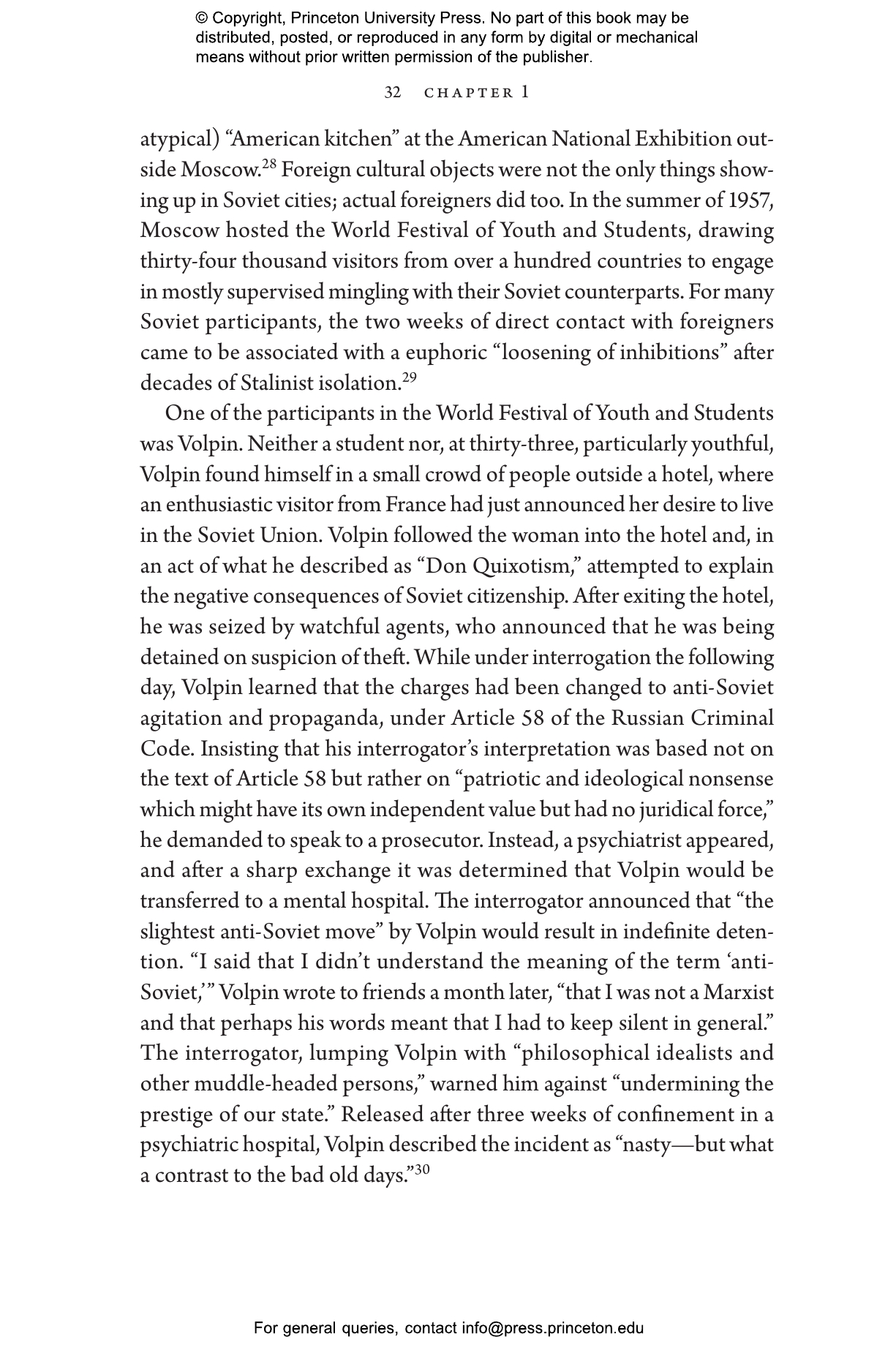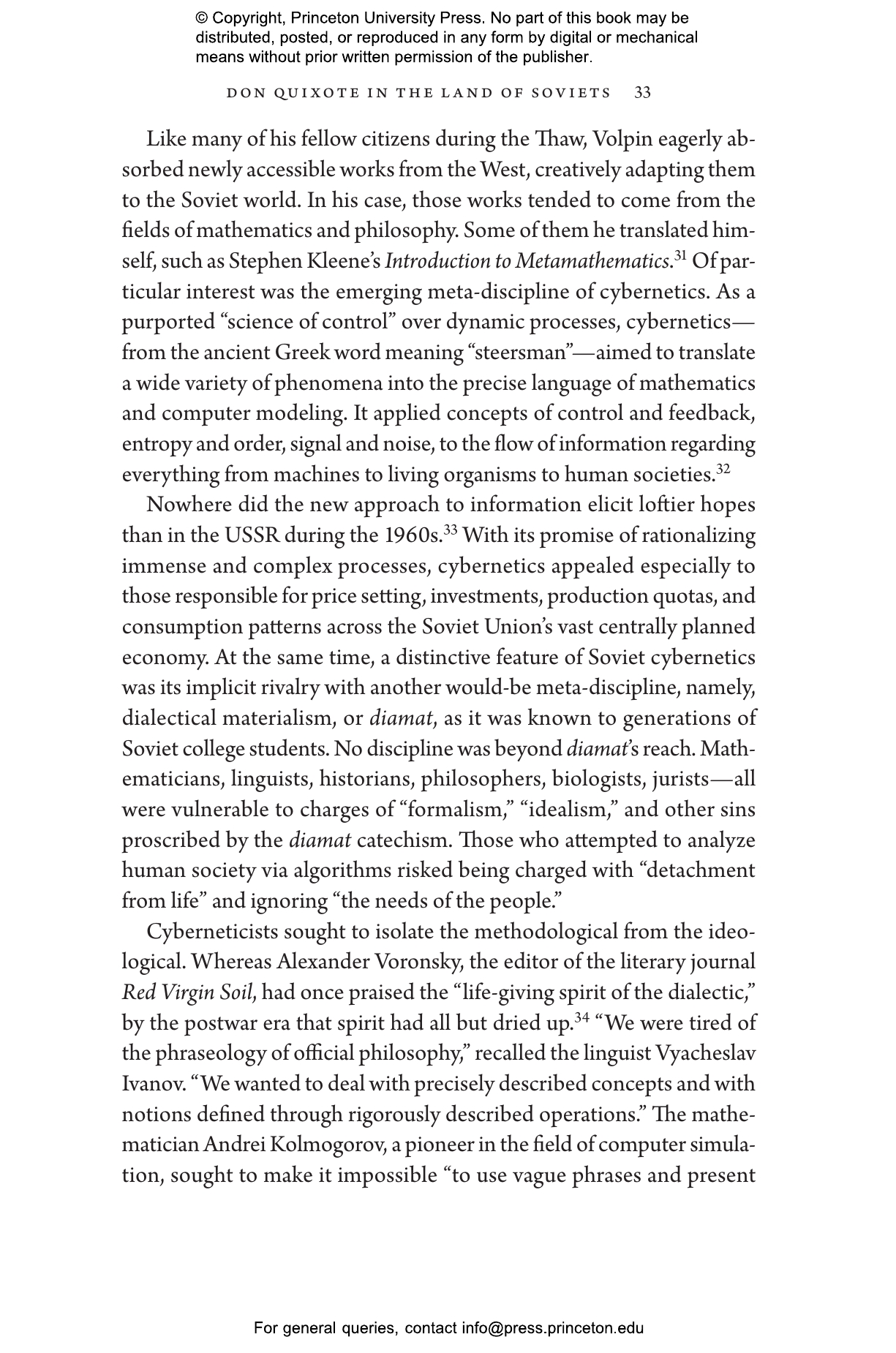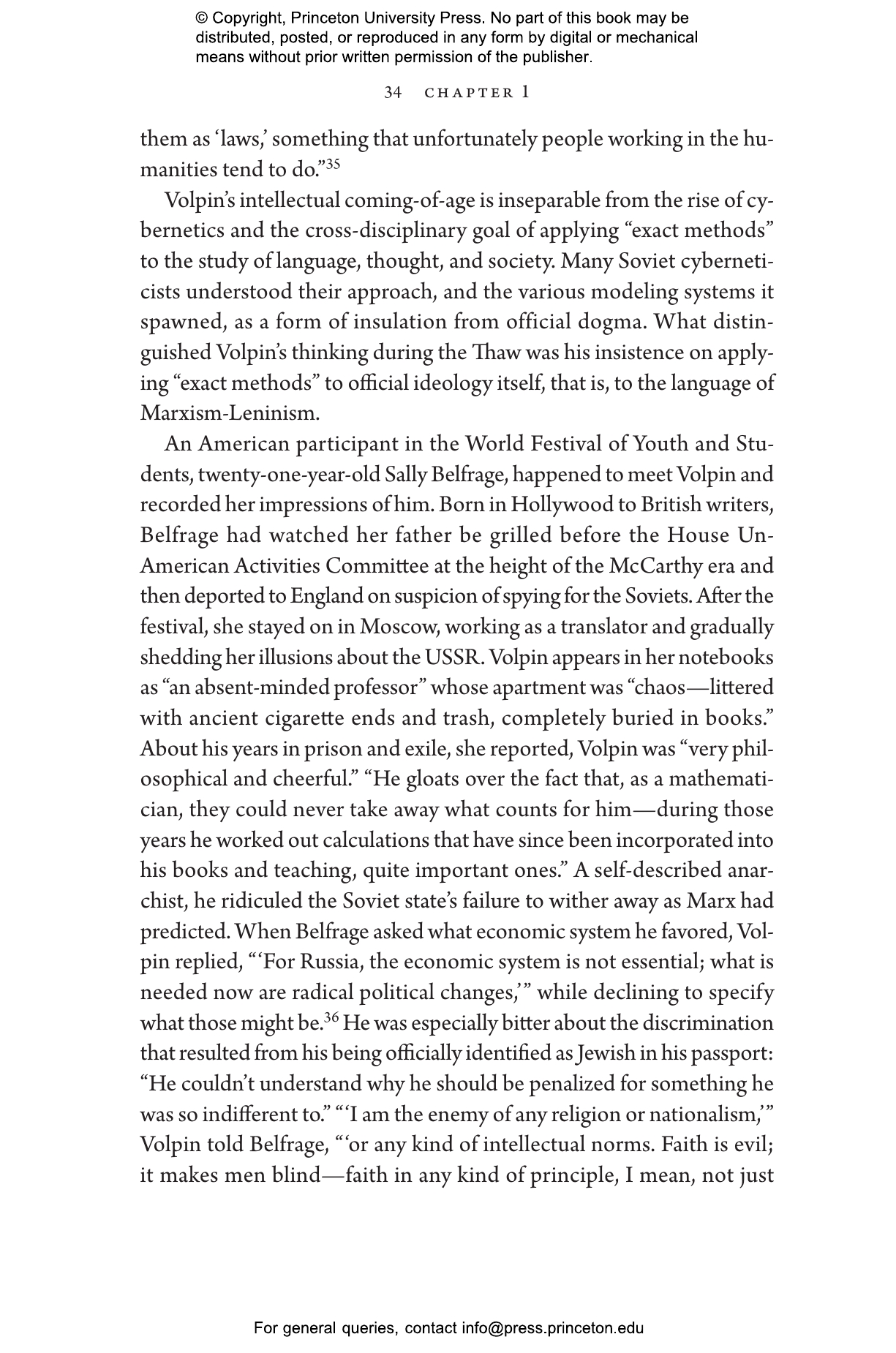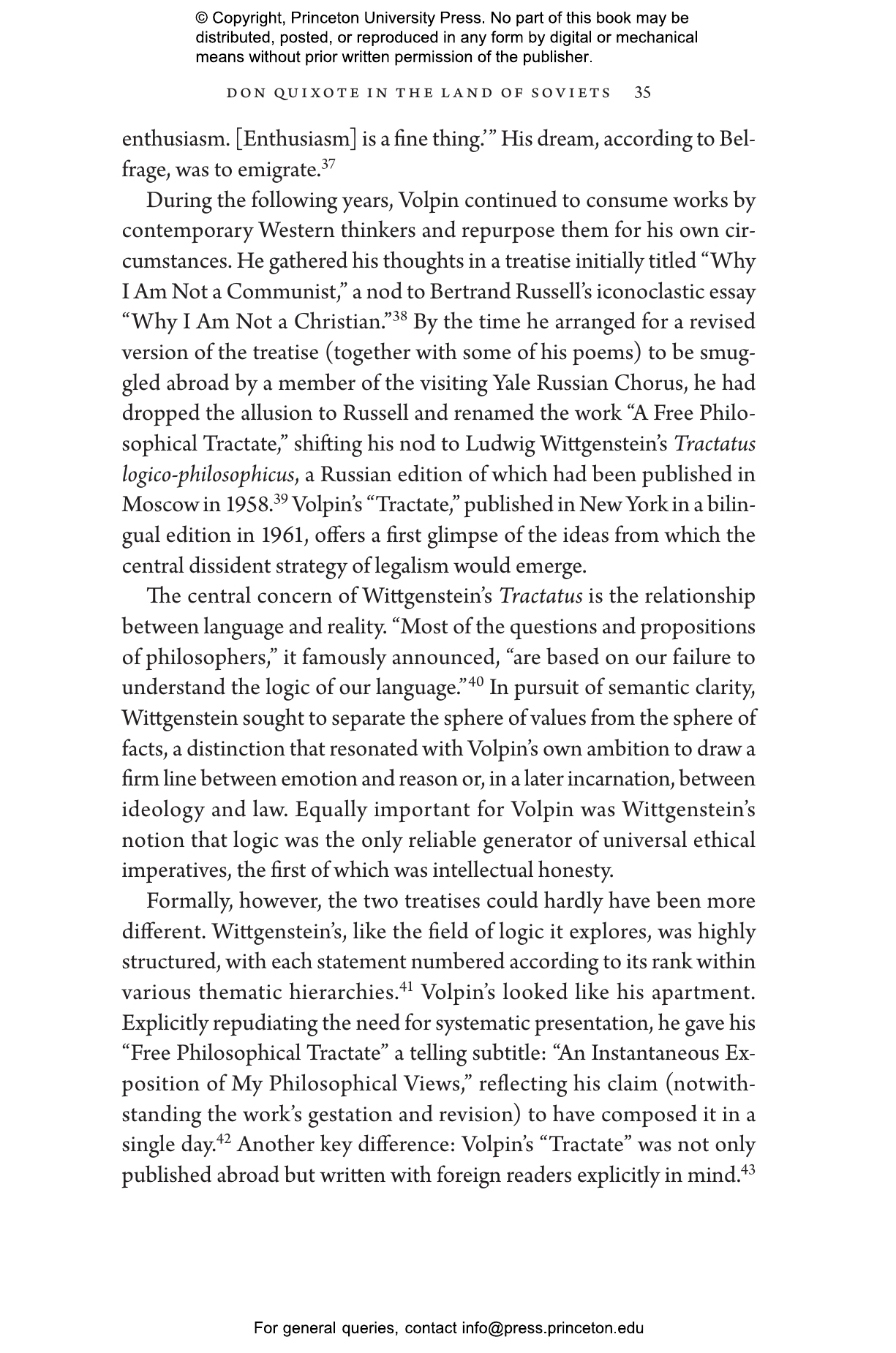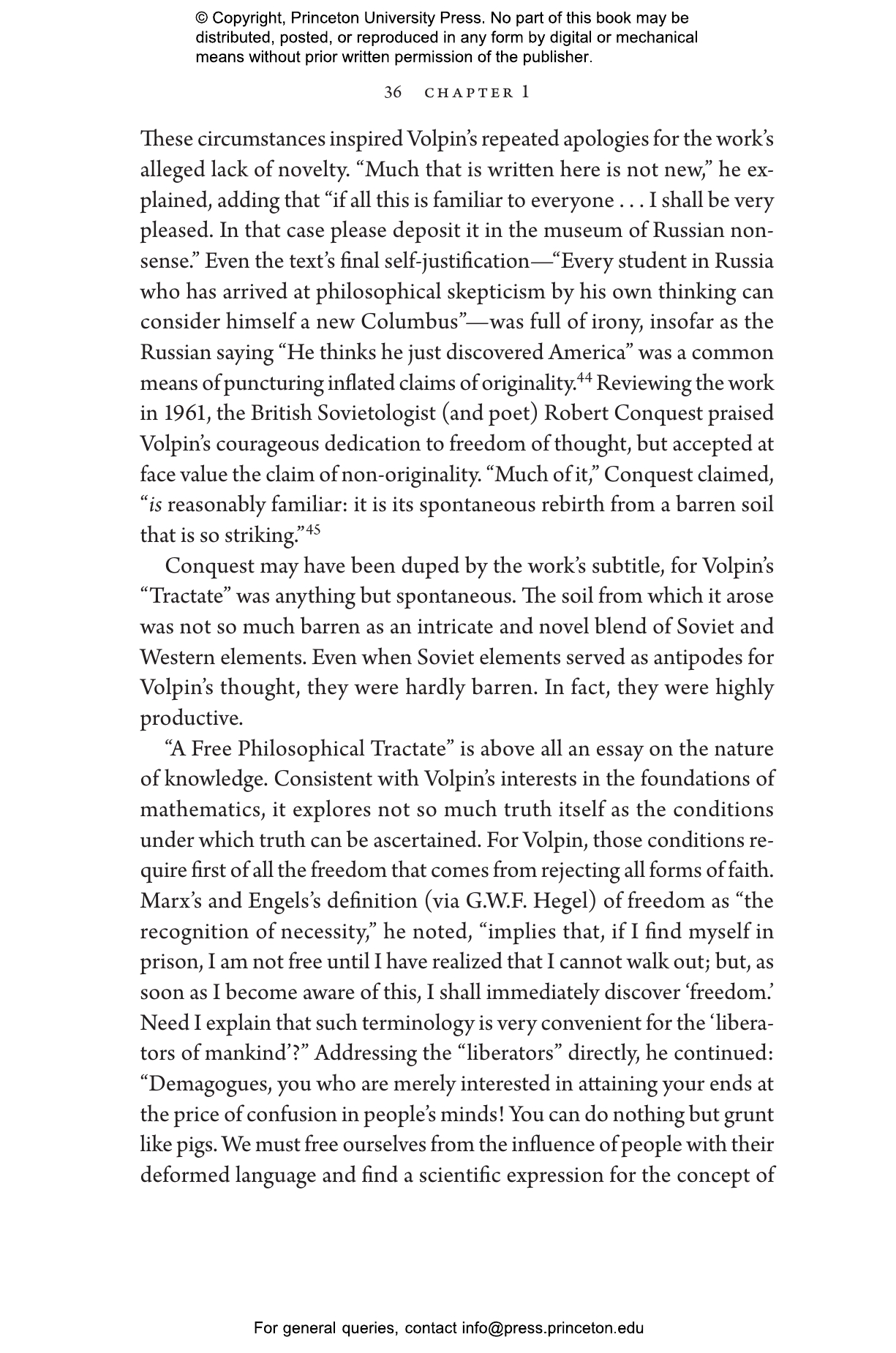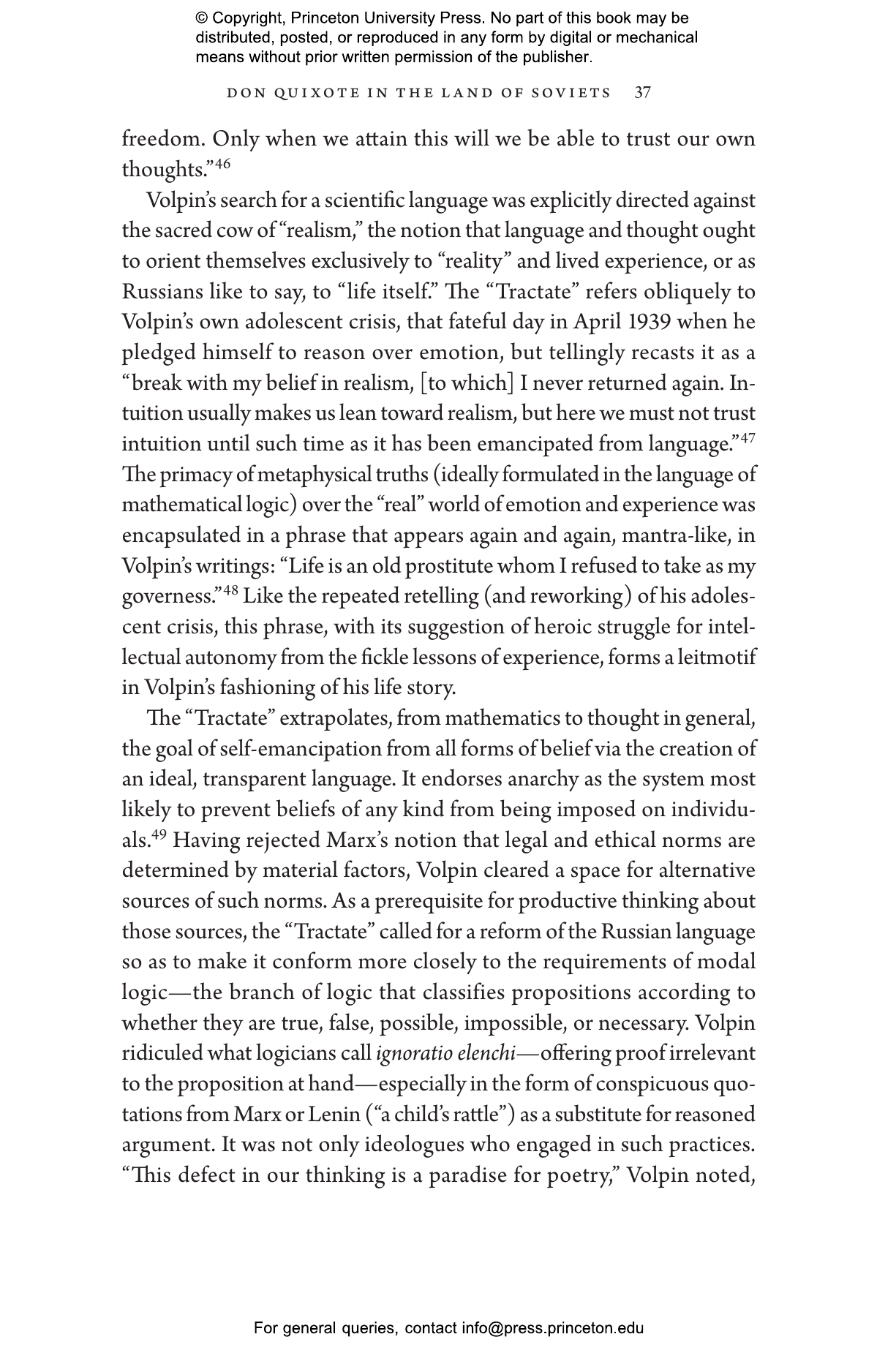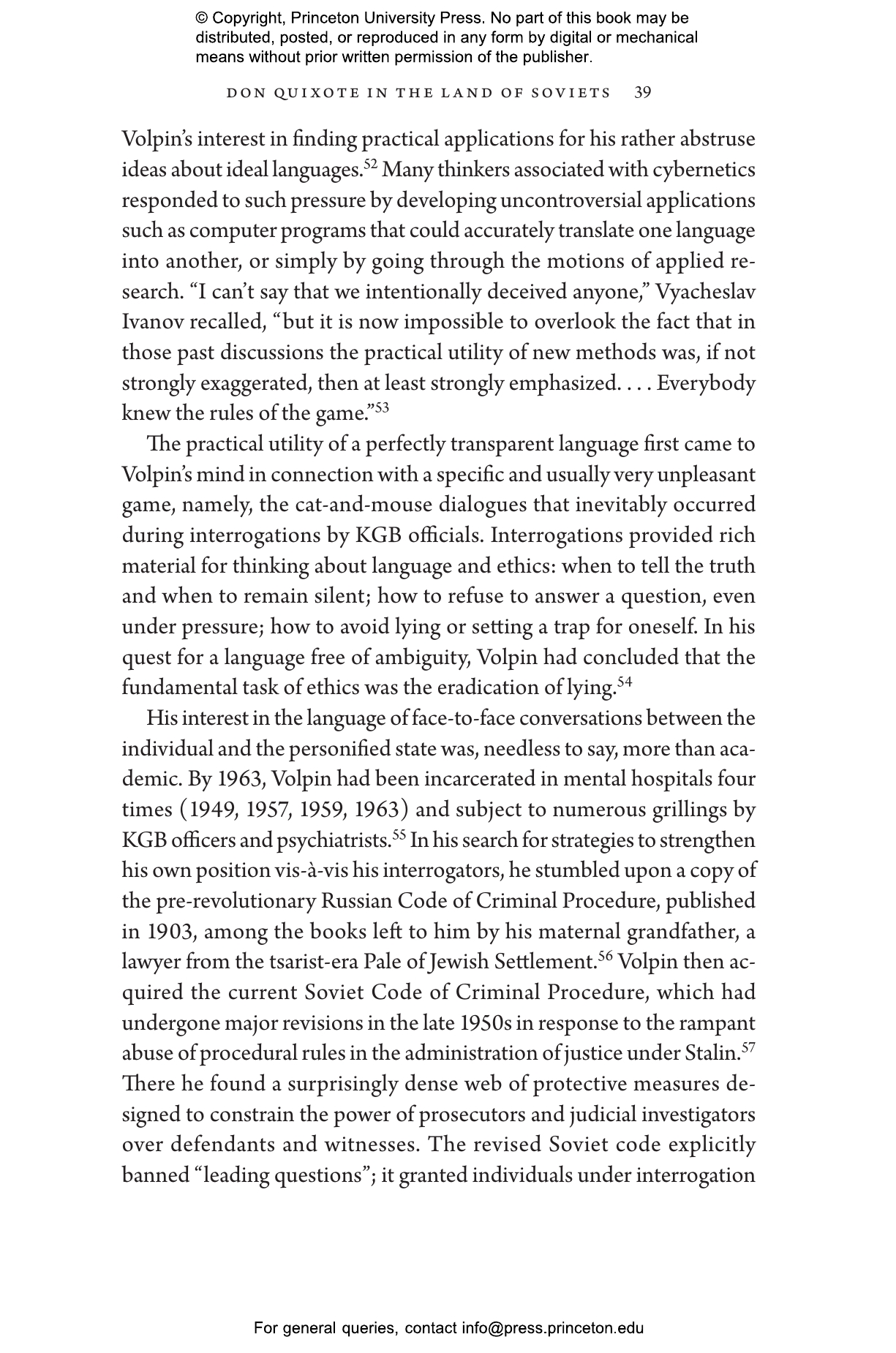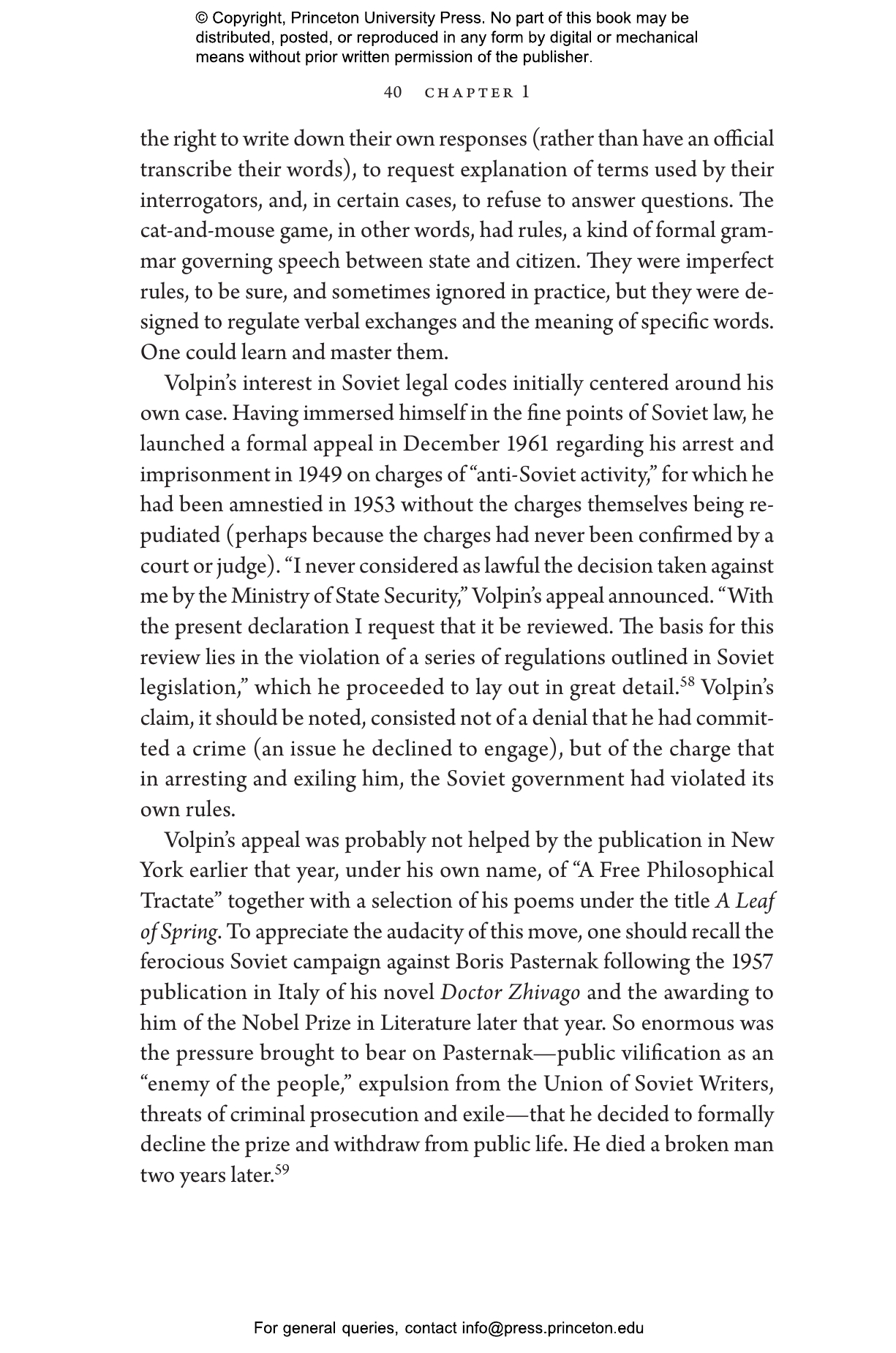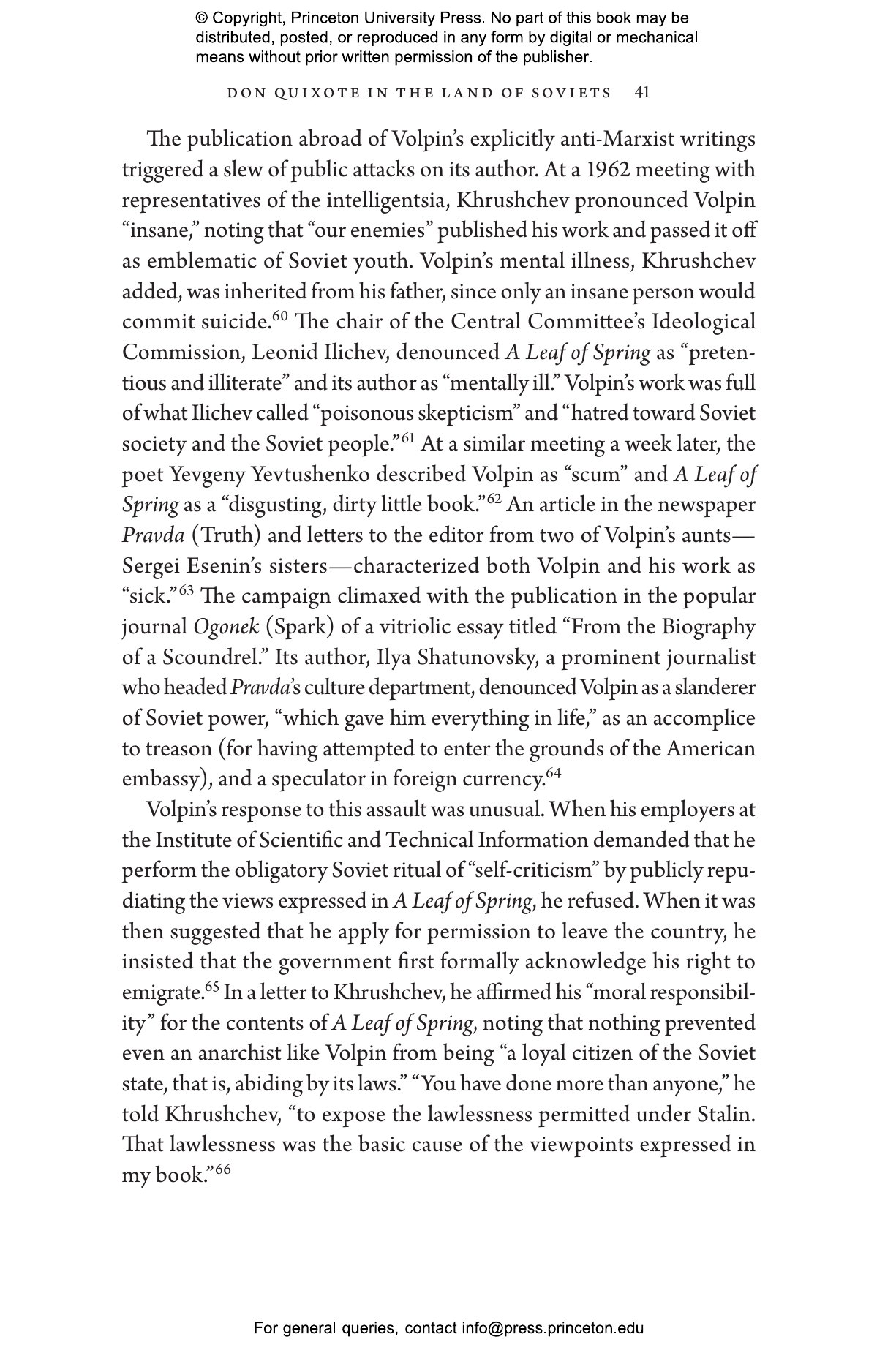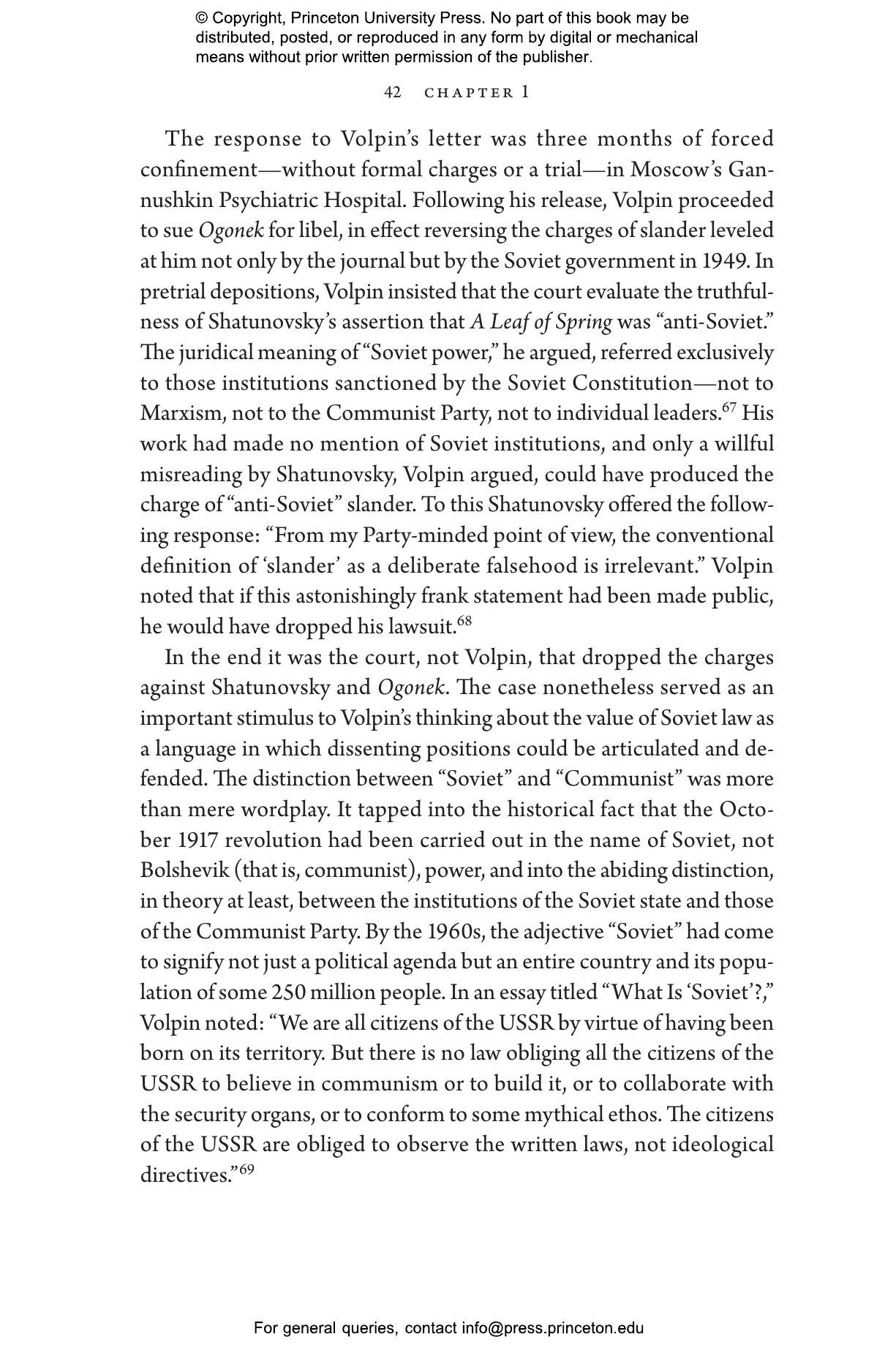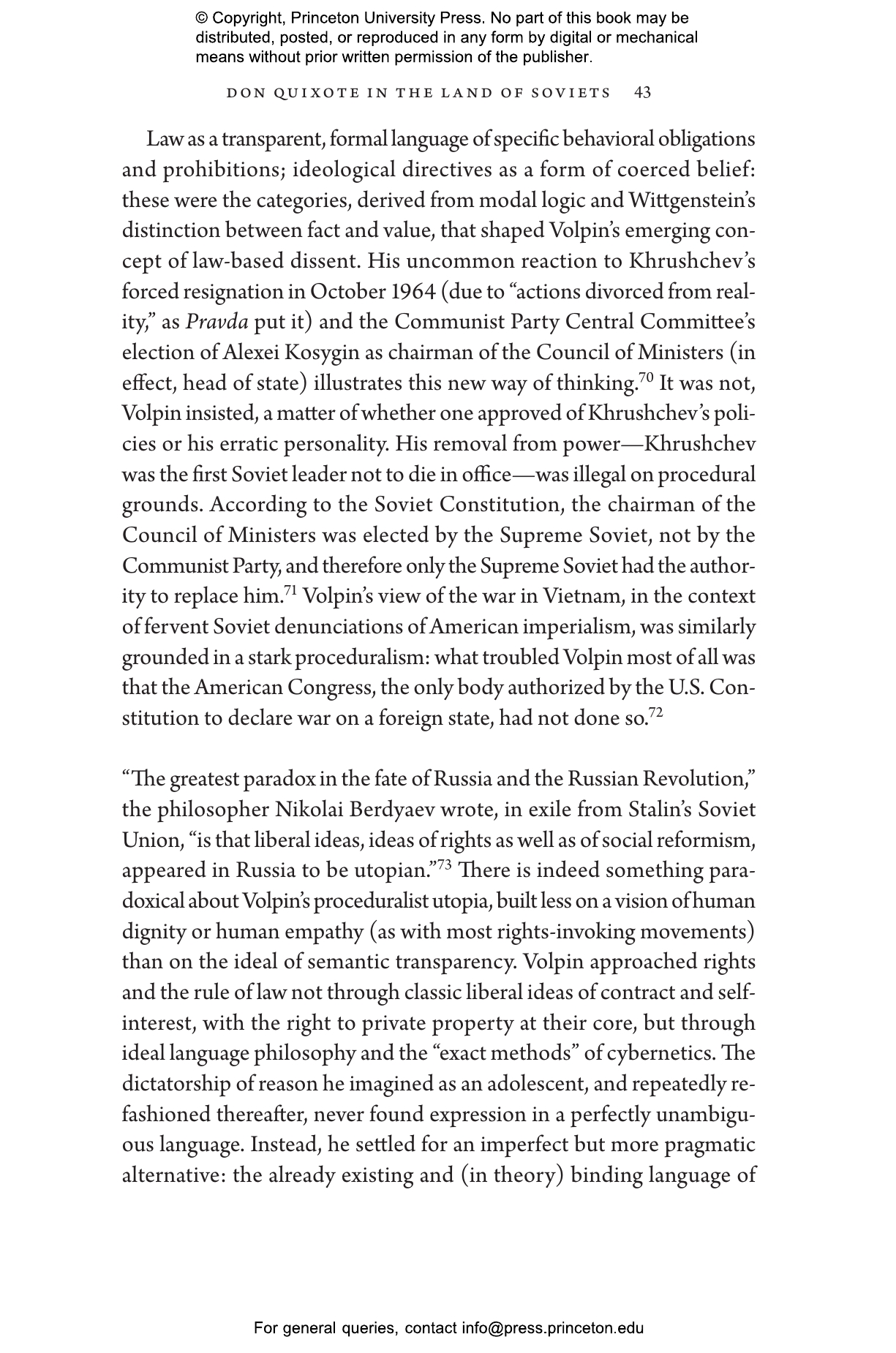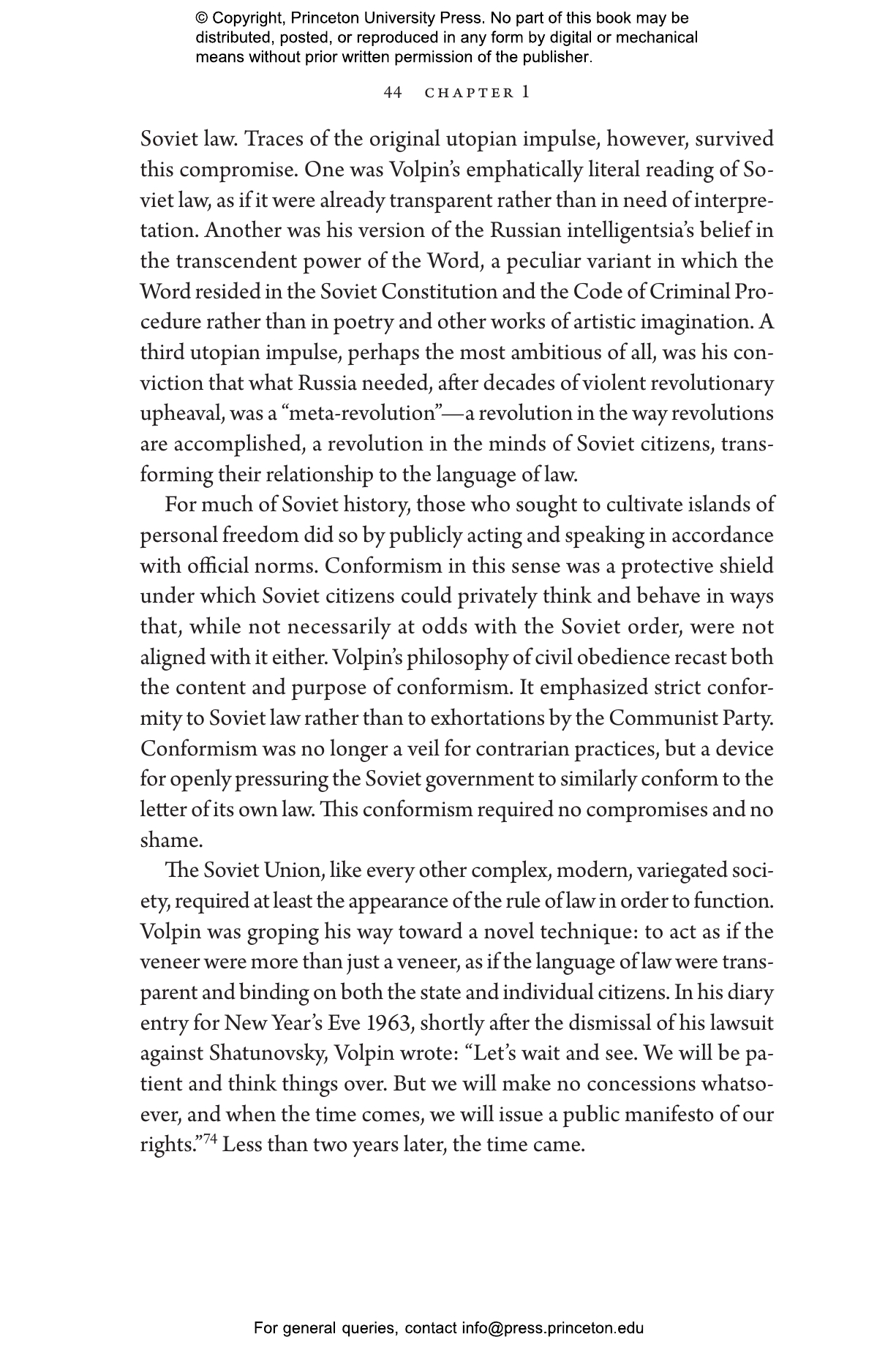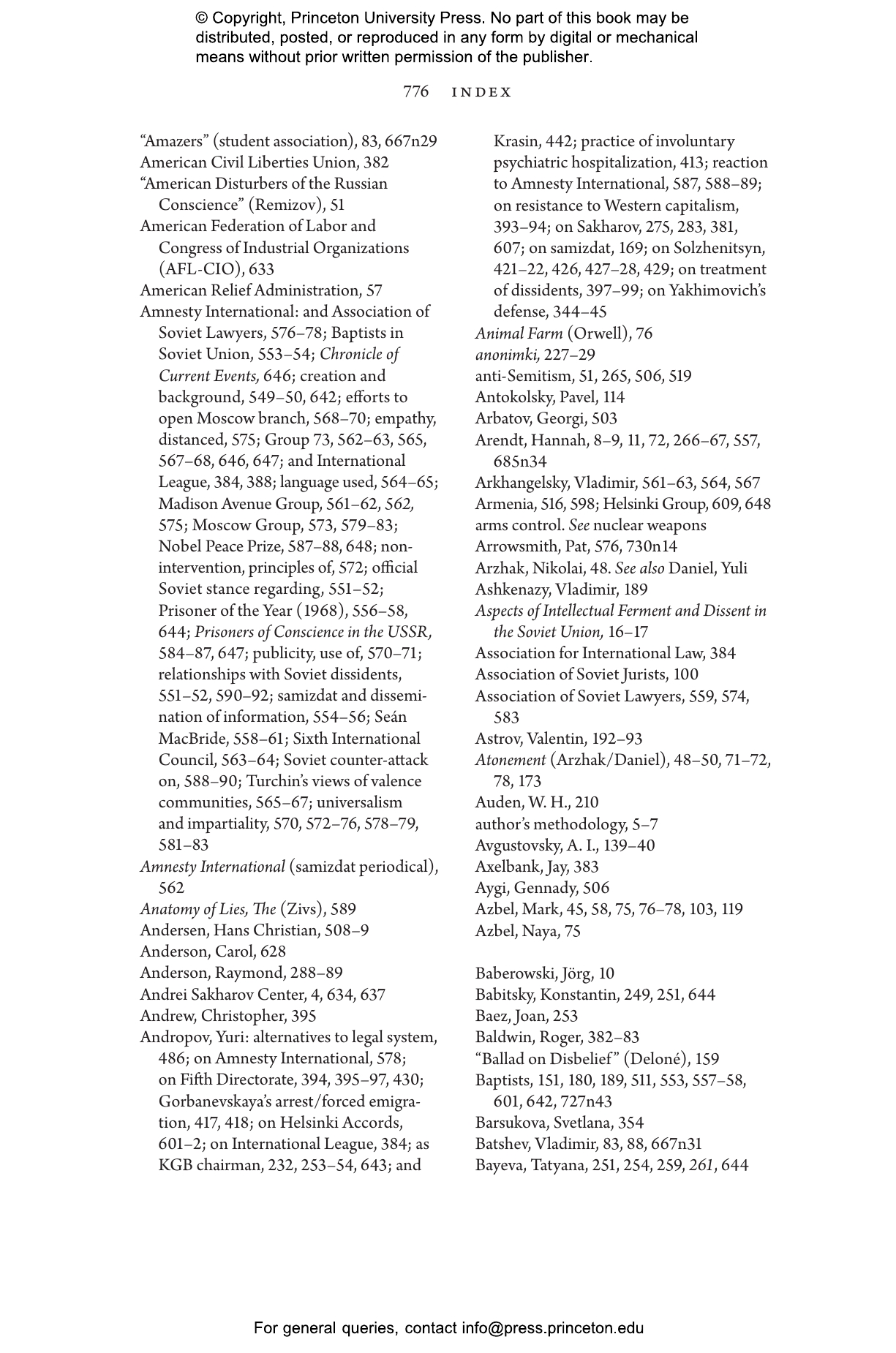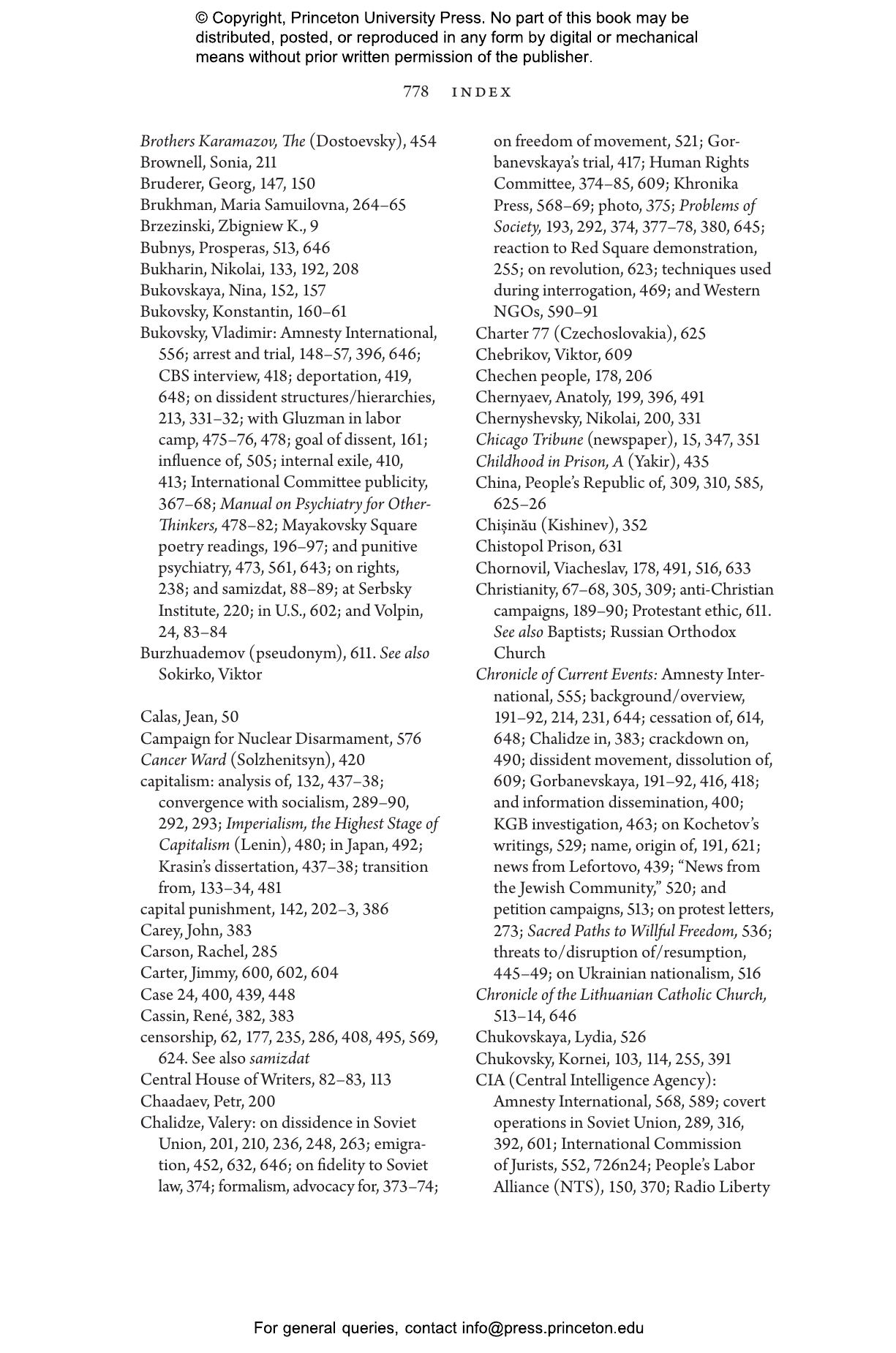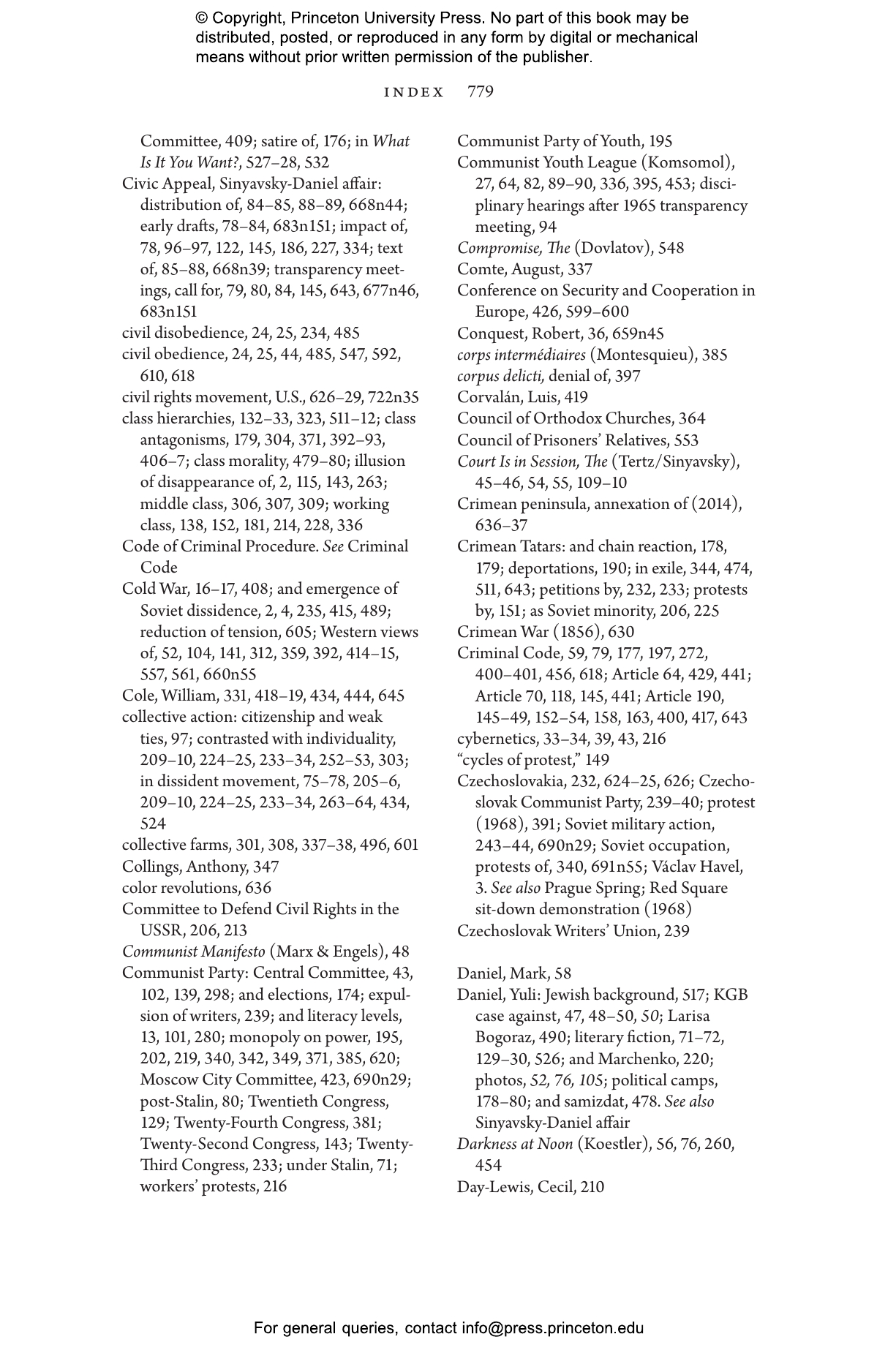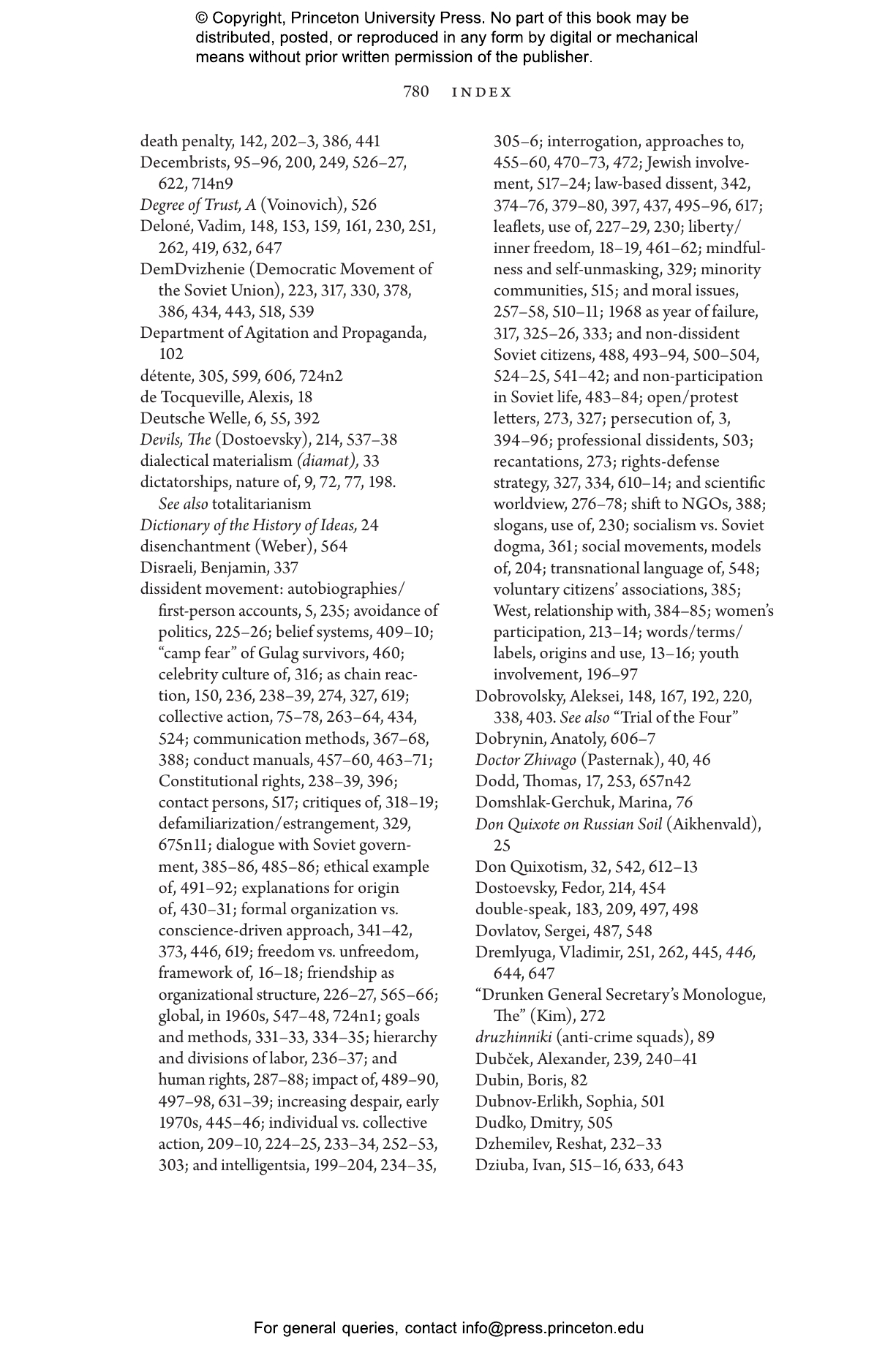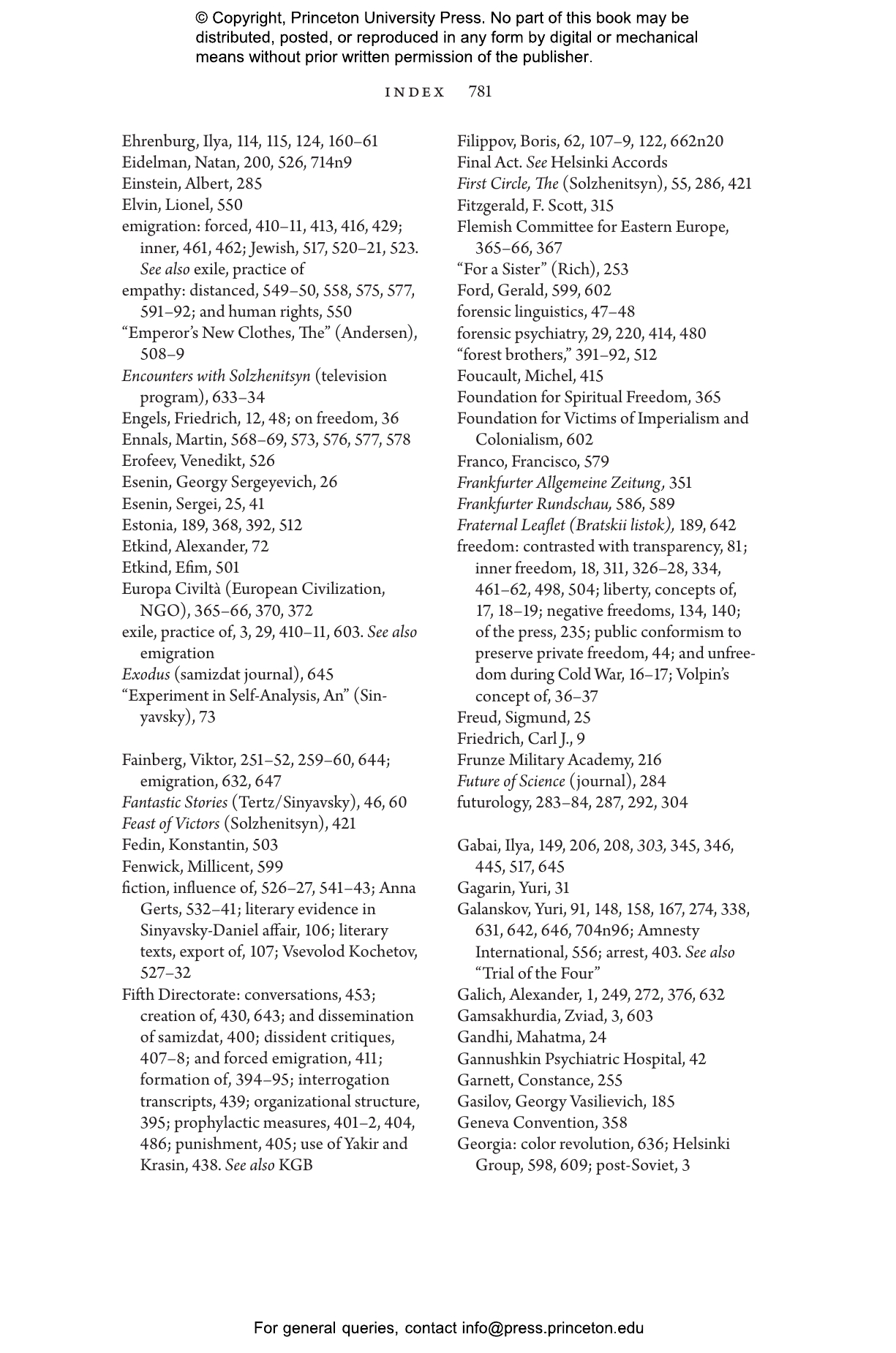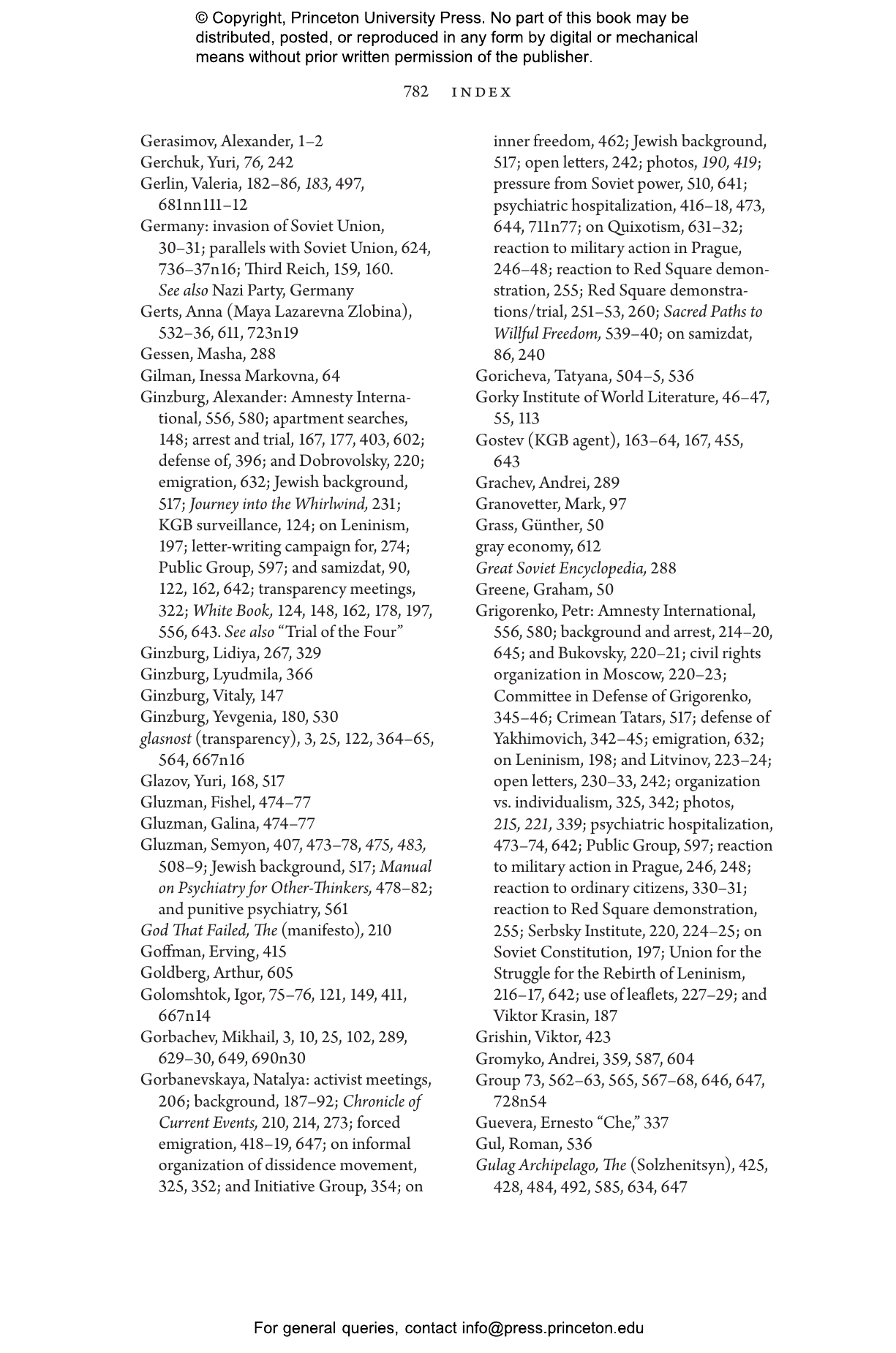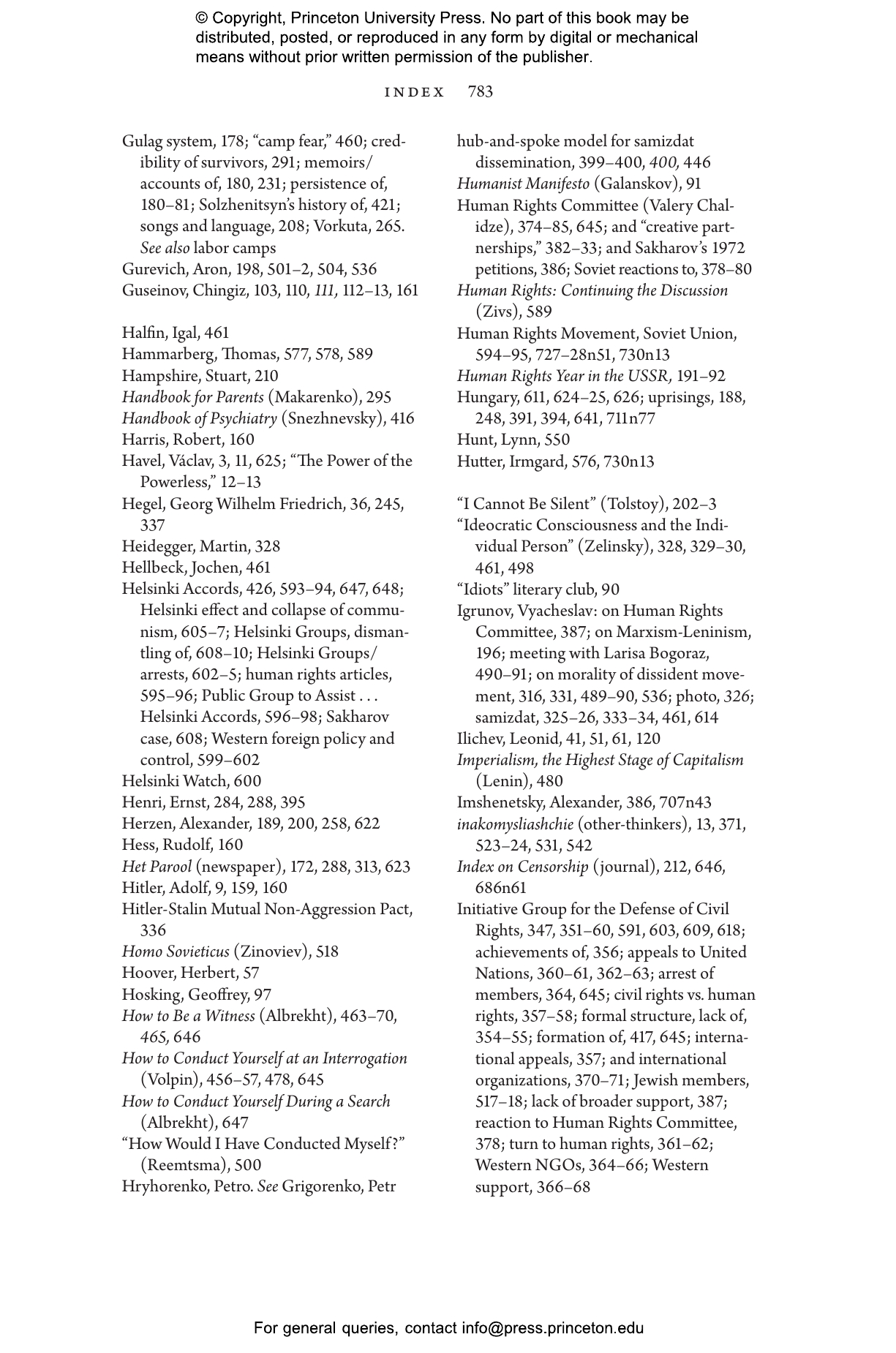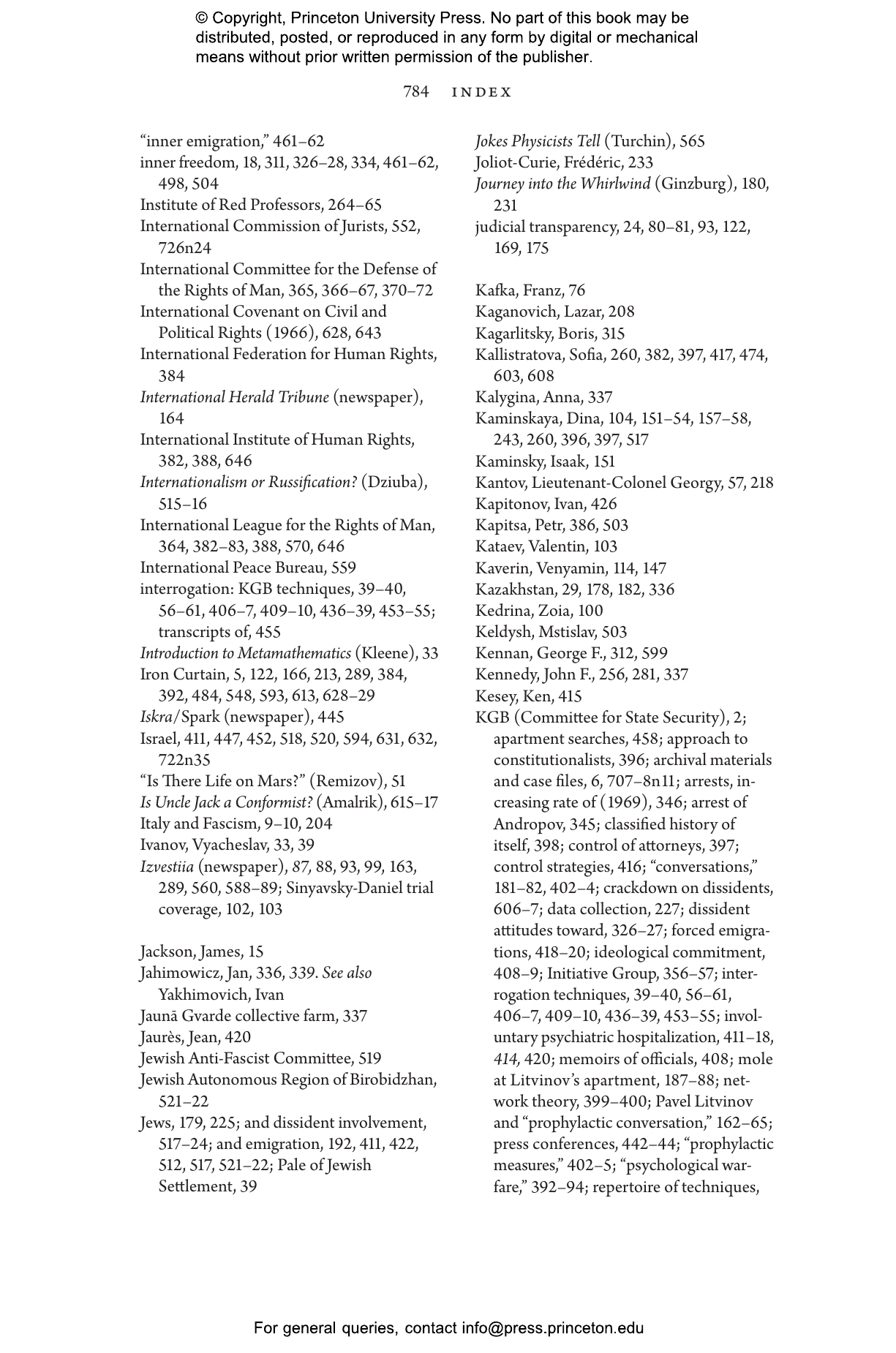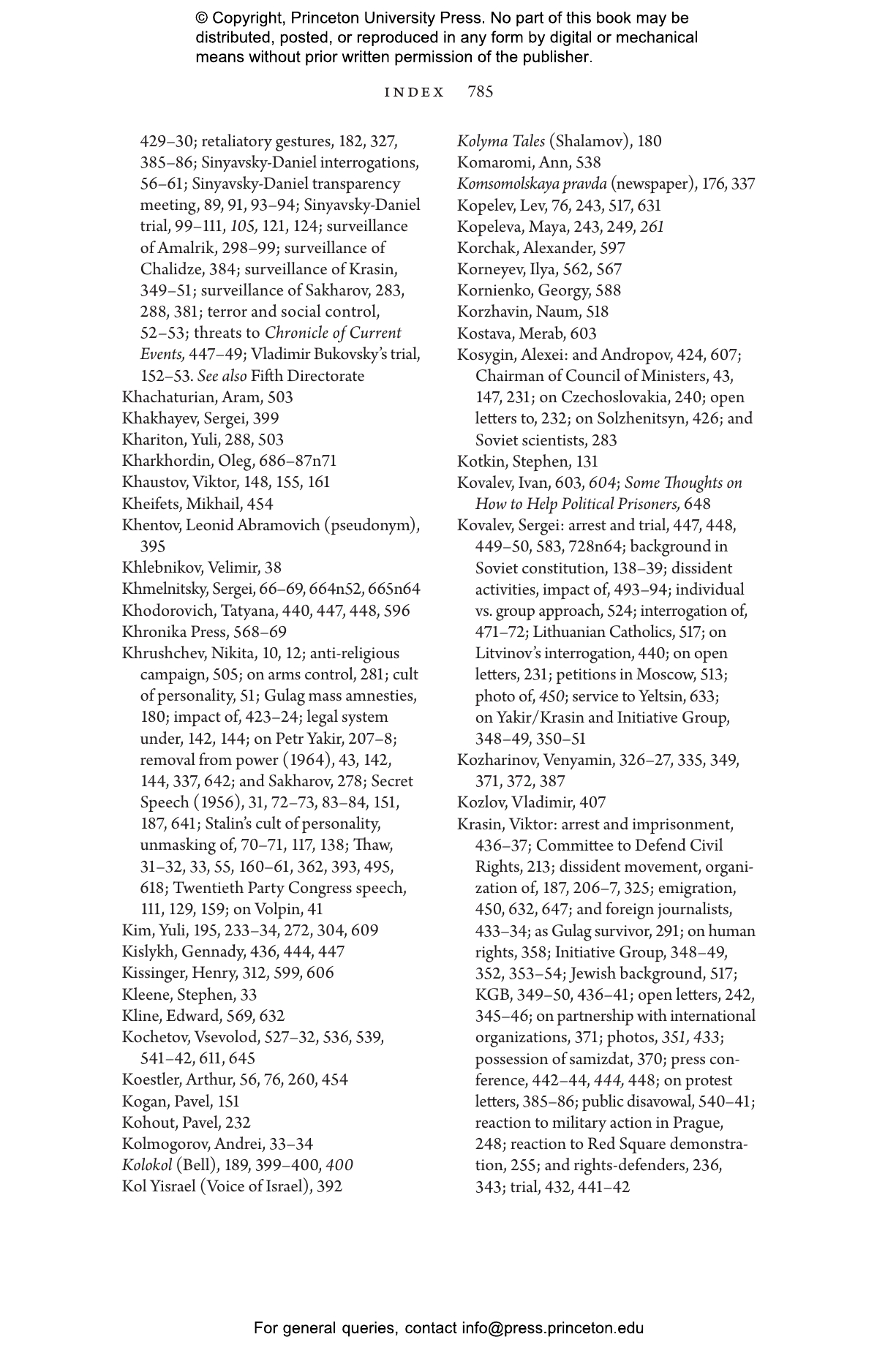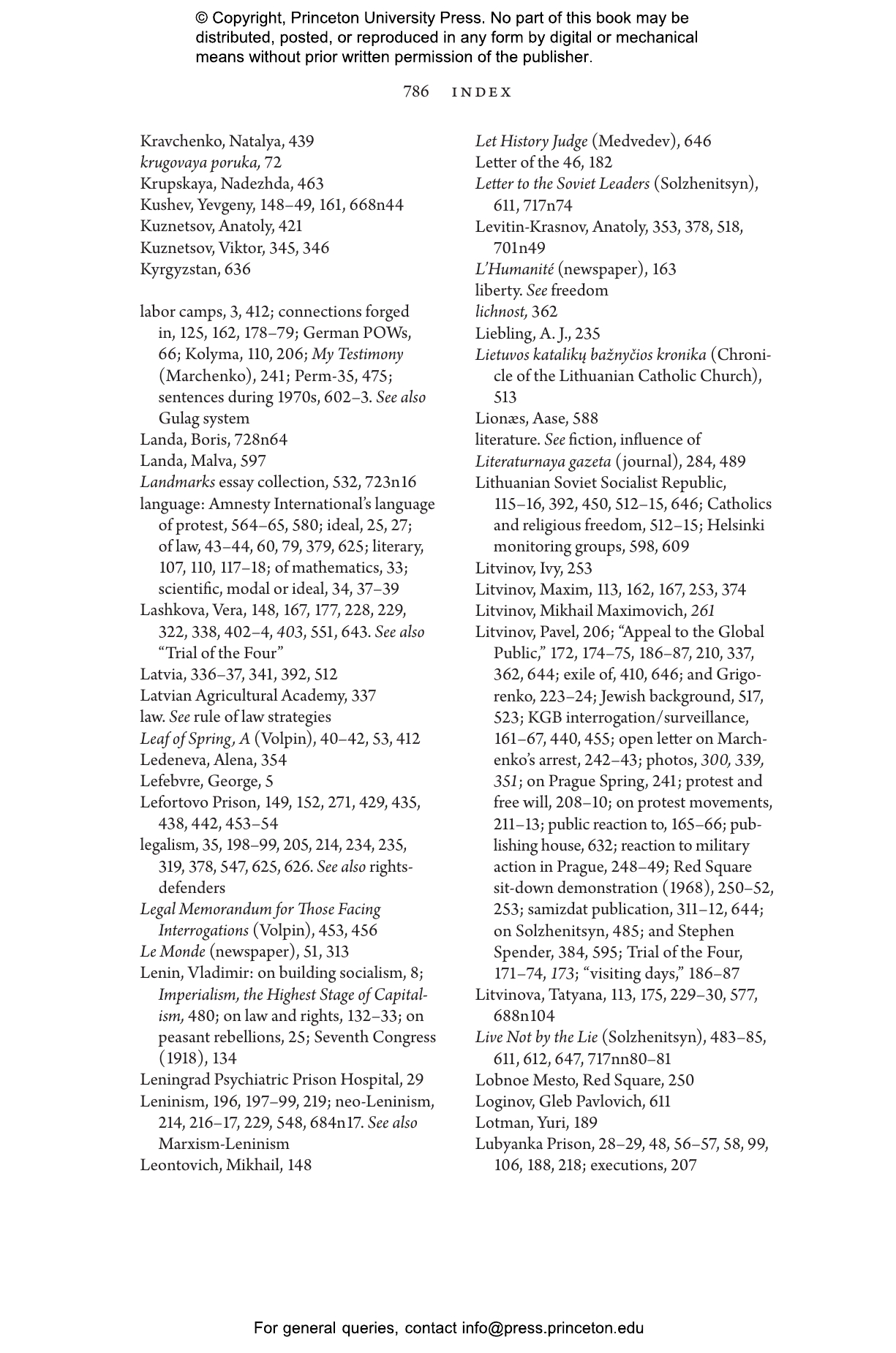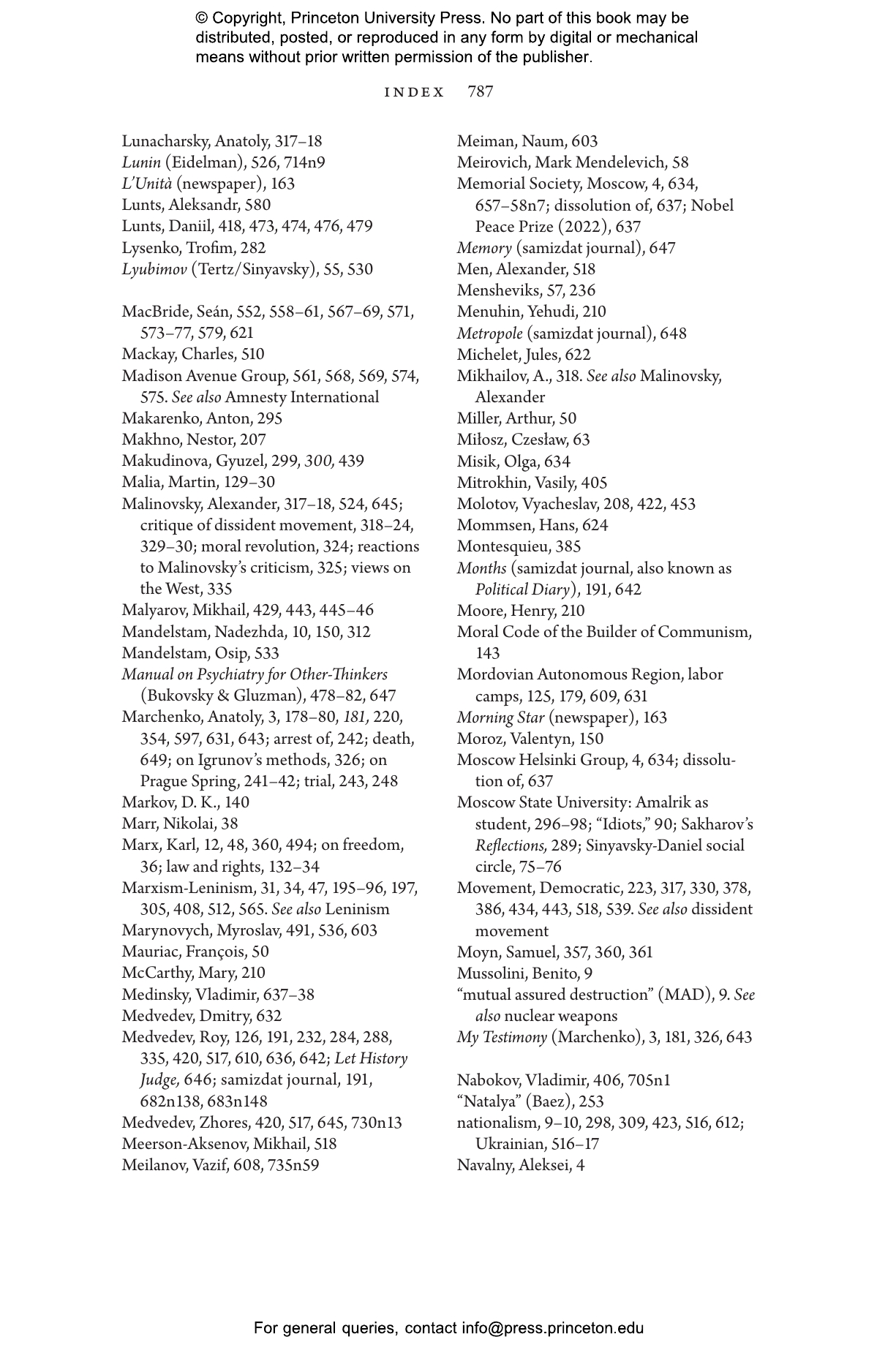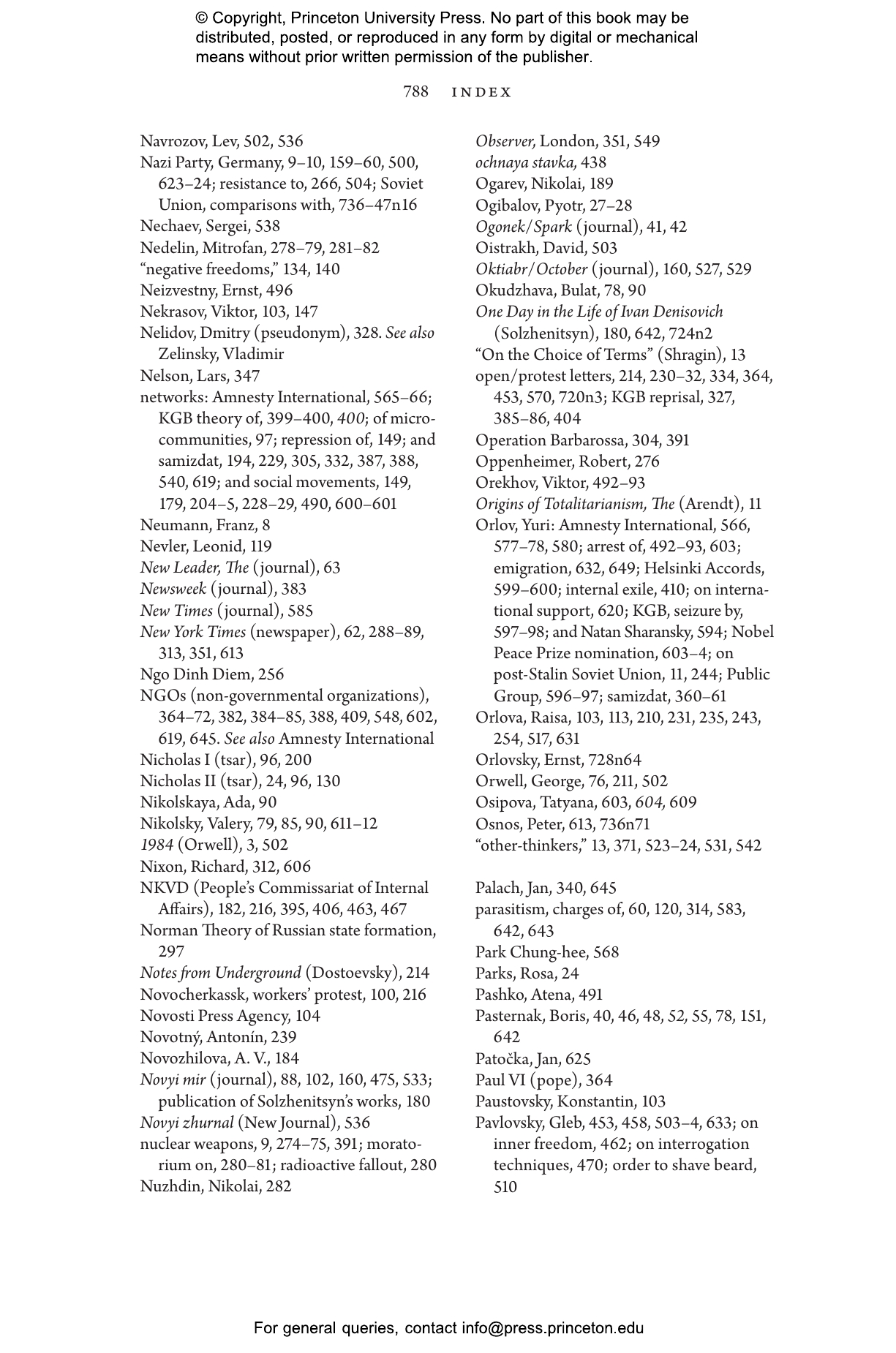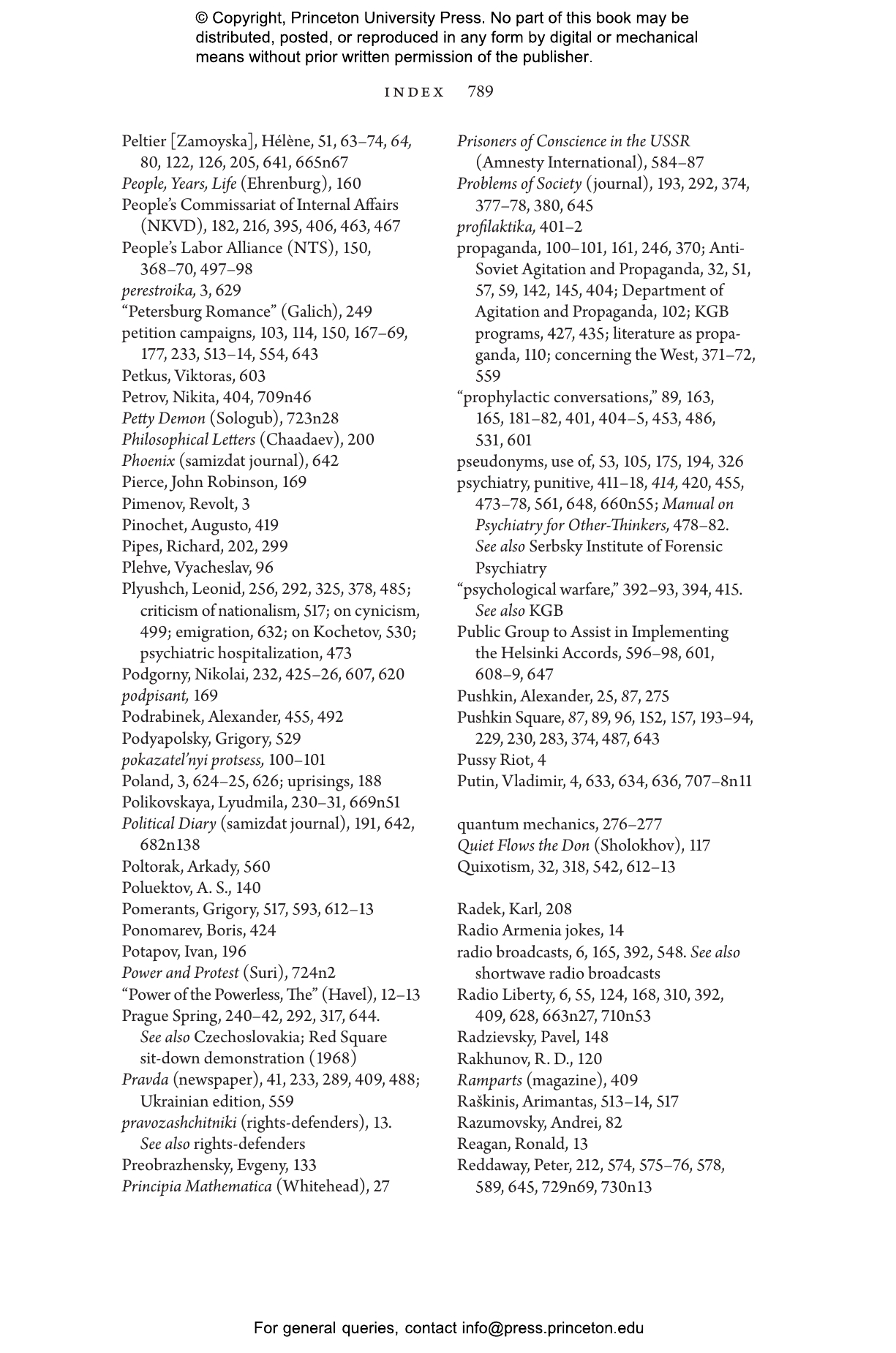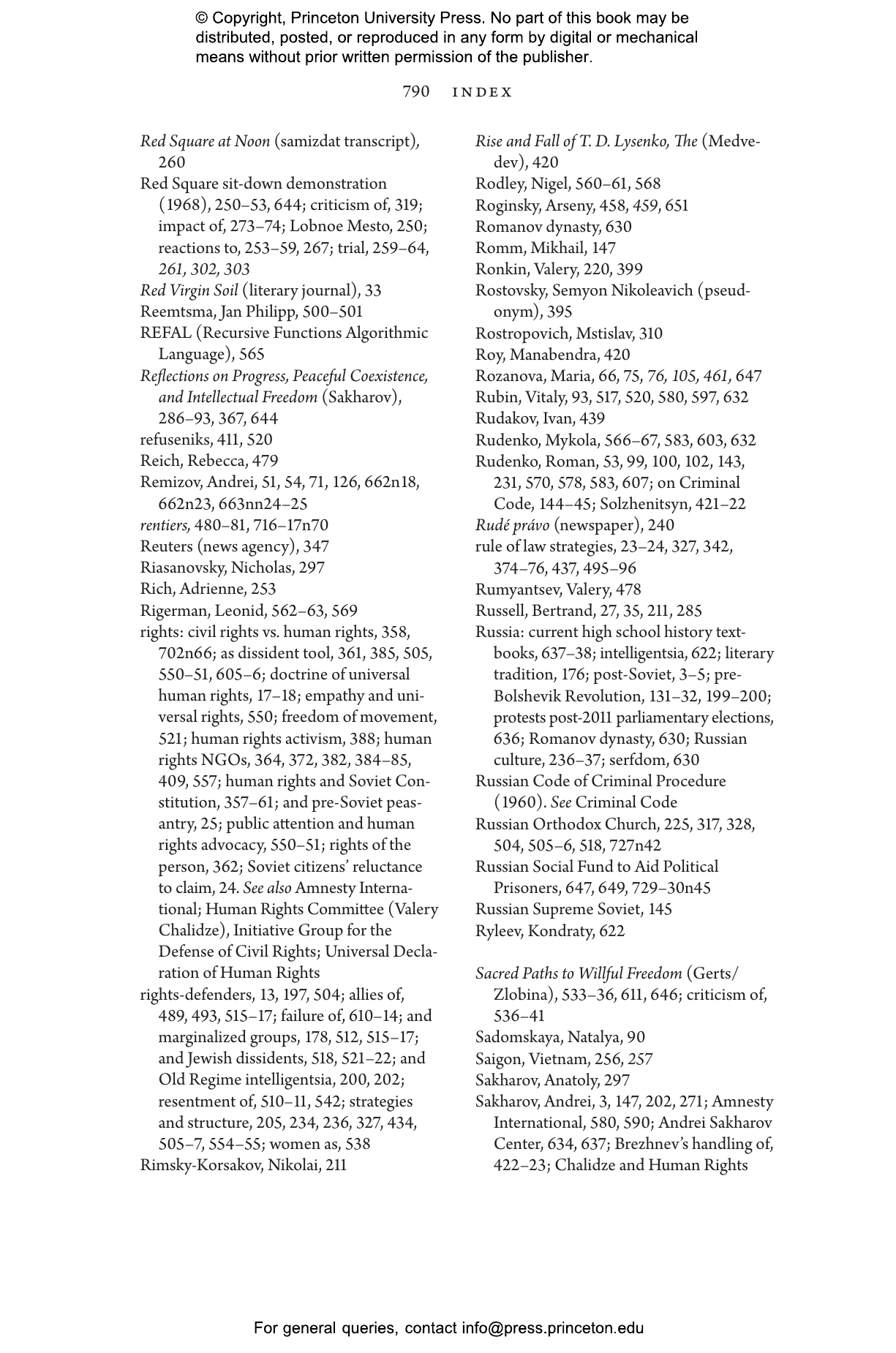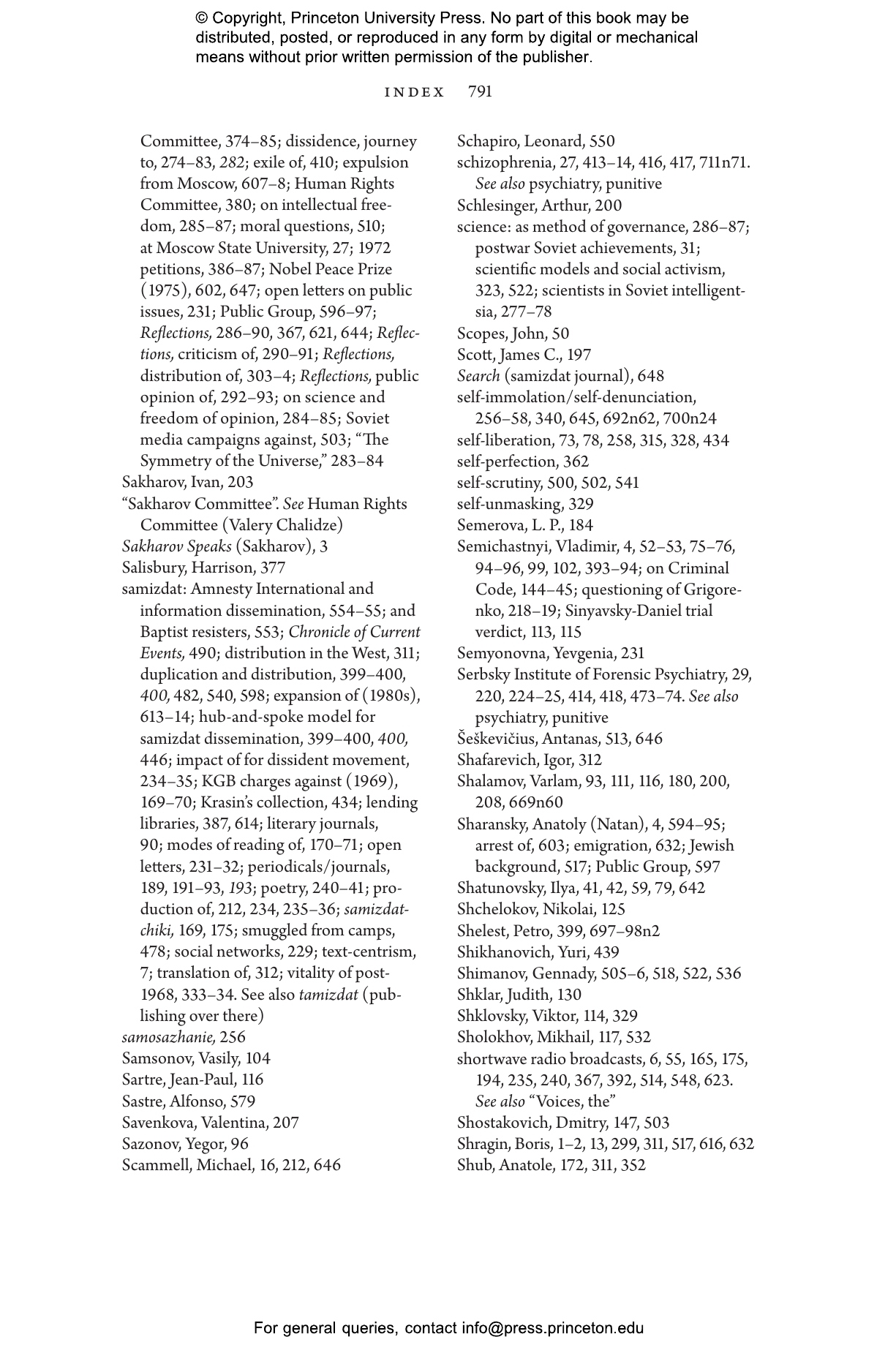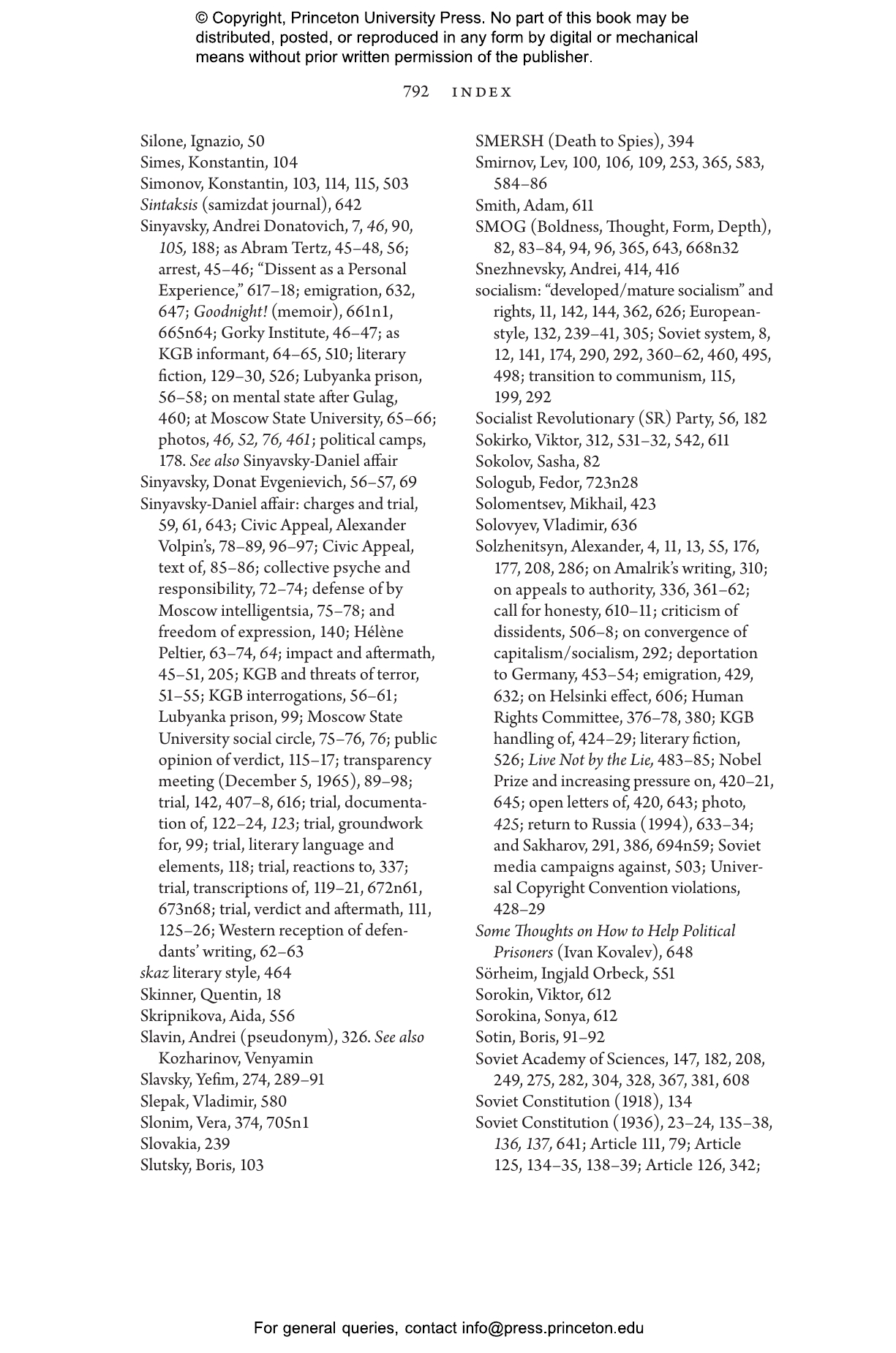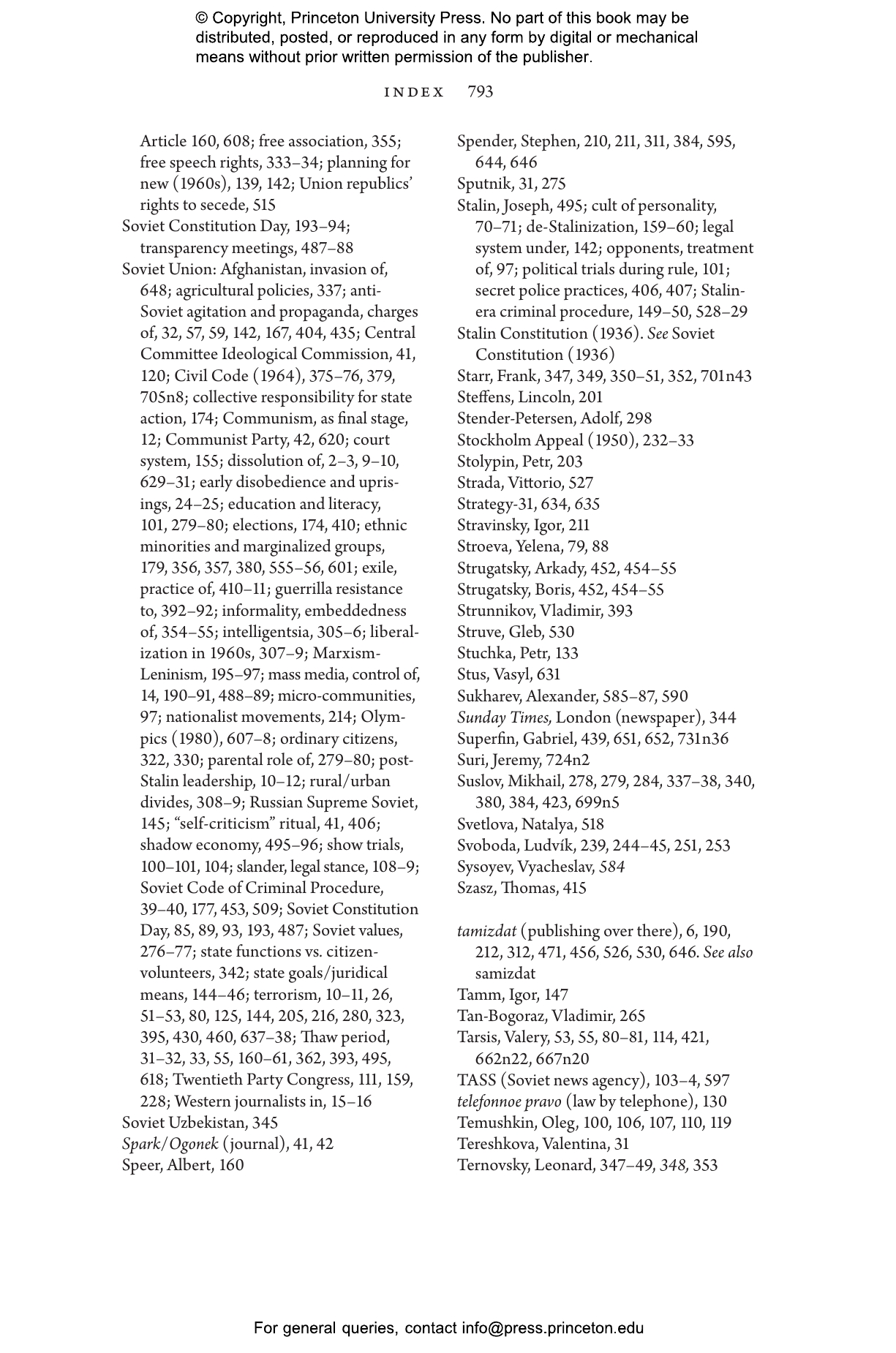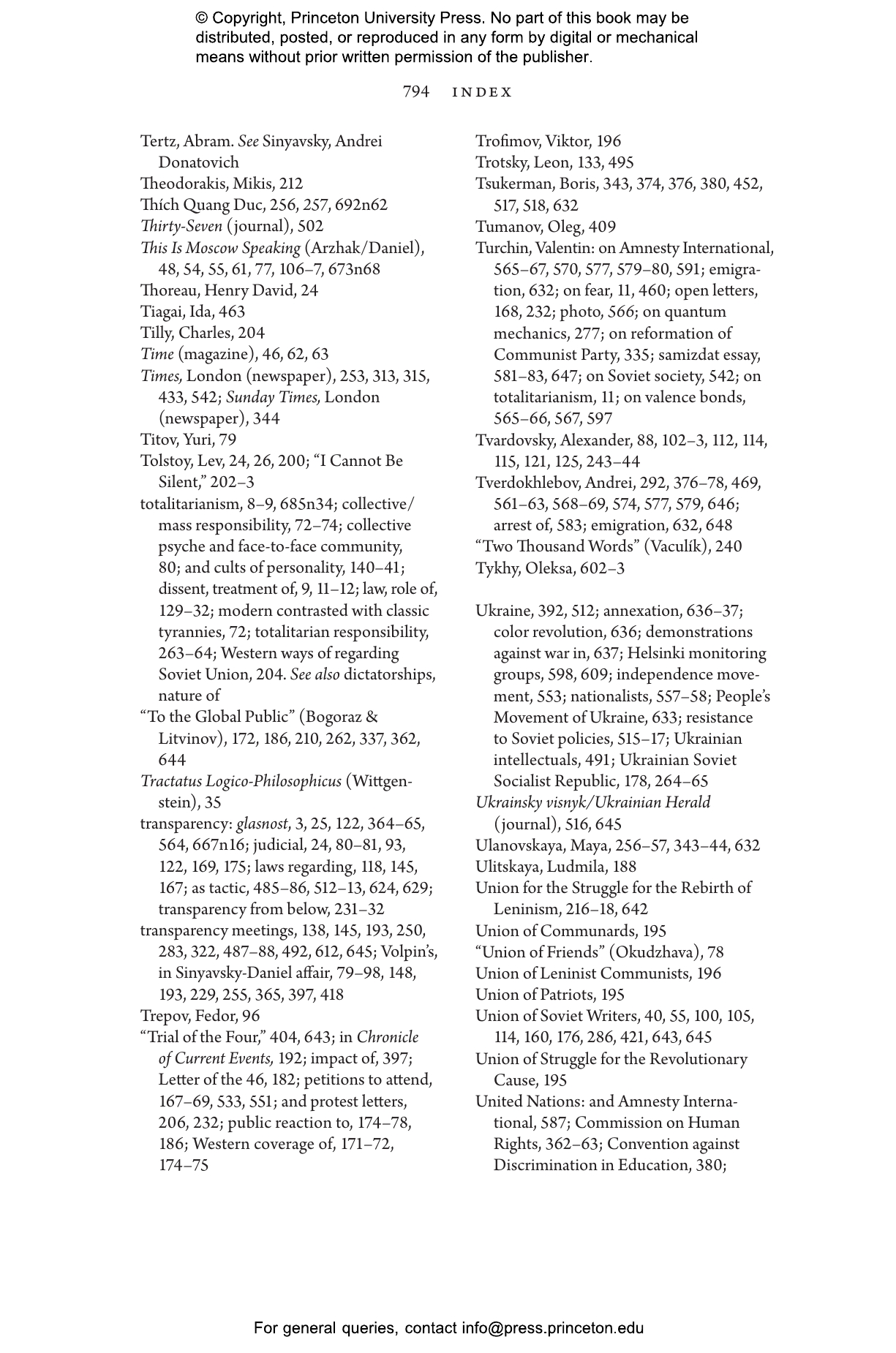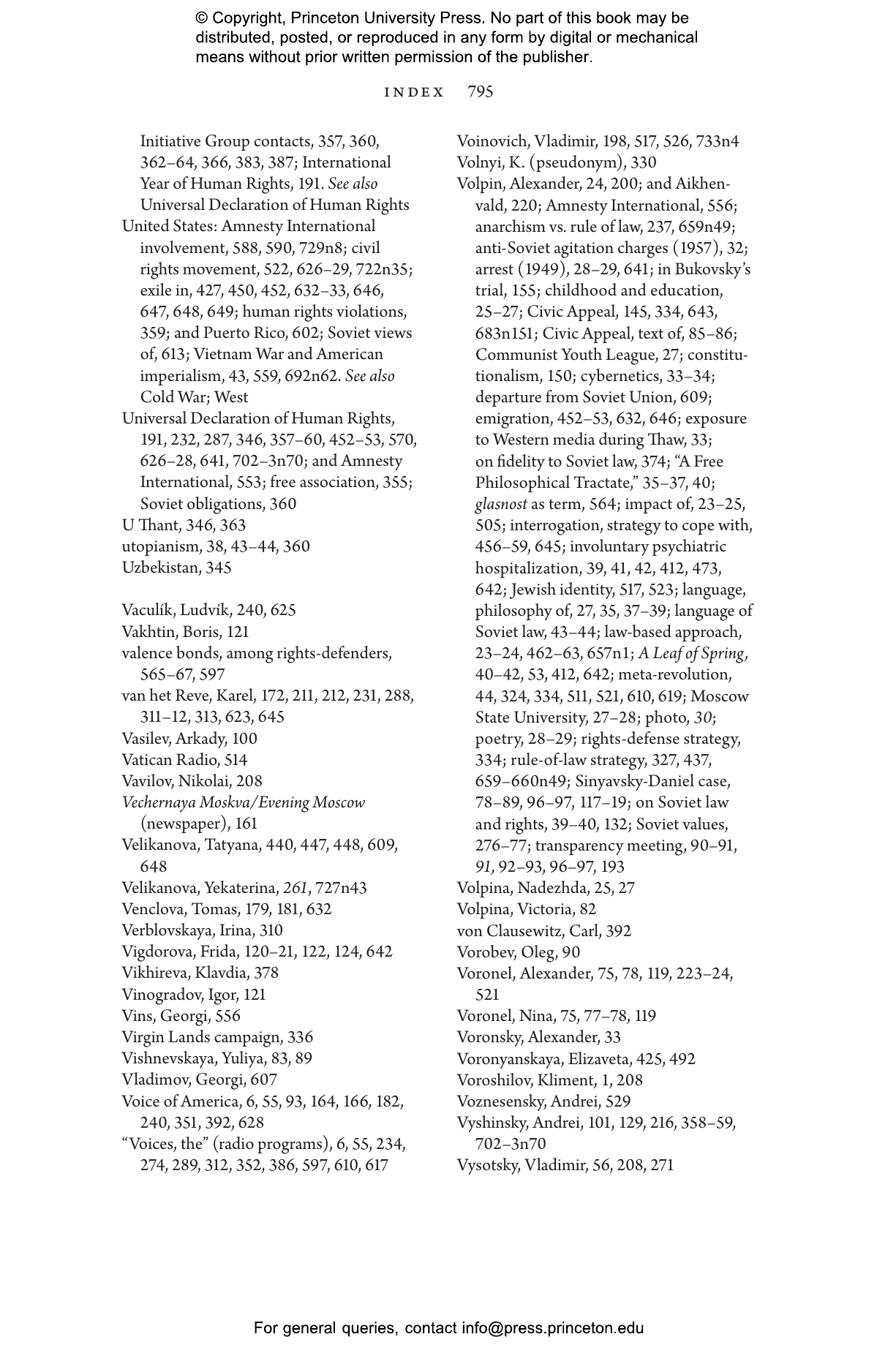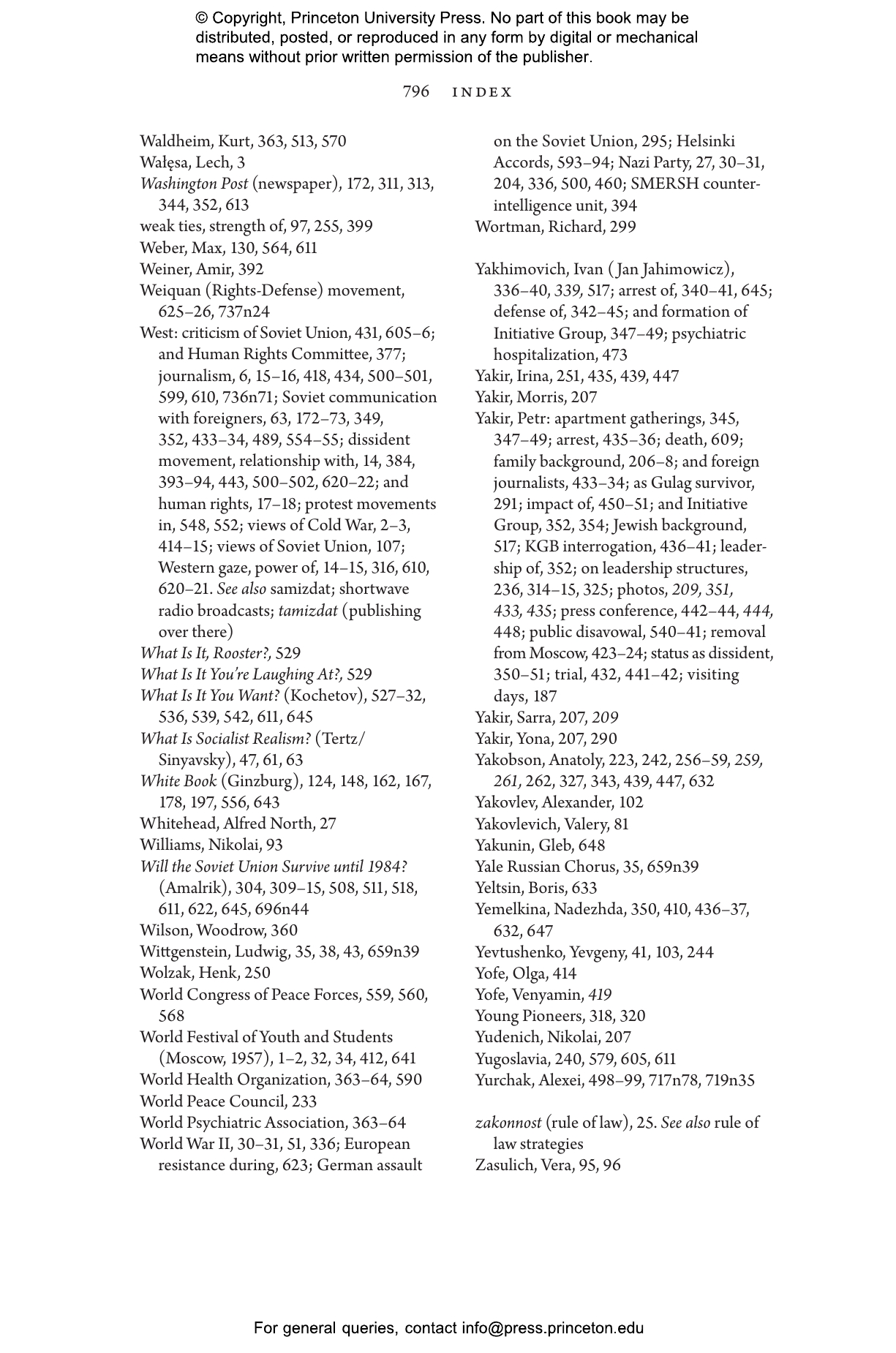Beginning in the 1960s, the Soviet Union was unexpectedly confronted by a dissident movement that captured the world’s imagination. Demanding that the Kremlin obey its own laws, an improbable band of Soviet citizens held unauthorized public gatherings, petitioned in support of arrested intellectuals, and circulated banned samizdat texts. Soviet authorities arrested dissidents, subjected them to bogus trials and vicious press campaigns, sentenced them to psychiatric hospitals and labor camps, sent them into exile—and transformed them into martyred heroes. Against all odds, the dissident movement undermined the Soviet system and unexpectedly hastened its collapse. Taking its title from a toast made at dissident gatherings, To the Success of Our Hopeless Cause is a definitive history of a remarkable group of people who helped change the twentieth century.
Benjamin Nathans’s vivid narrative tells the dramatic story of the men and women who became dissidents—from Nobel laureates Andrei Sakharov and Alexander Solzhenitsyn to many others who are virtually unknown today. Drawing on diaries, memoirs, personal letters, interviews, and KGB interrogation records, To the Success of Our Hopeless Cause reveals how dissidents decided to use Soviet law to contain the power of the Soviet state. This strategy, as one of them put it, was “simple to the point of genius: in an unfree country, they began to conduct themselves like free people.”
An extraordinary account of the Soviet dissident movement, To the Success of Our Hopeless Cause shows how dissidents spearheaded the struggle to break free of the USSR’s totalitarian past, a struggle that continues in Putin’s Russia—and that illuminates other struggles between hopelessness and perseverance today.
Awards and Recognition
- A Stevereads History Book of the Year
"Thoughtful, superbly researched and gracefully written study of the Russian dissident movement. . . . [A] riveting history."—Gary Saul Morson, Wall Street Journal
"To the Success of Our Hopeless Cause offers refreshingly clear-eyed insights into the idiosyncratic world of those who fought for freedom behind the Iron Curtain. . . . [It] empathetically traces the stories of those who broke the rules by sticking to the law . . . with a host of original insights, shedding light on a remarkable cast of individuals who never succumbed to political apathy at a time when most did."—Katja Hoyer, Telegraph
"Clear, scholarly and careful, averse to jargon, shrewd about testimony, subtle in his presentation of the various figures; he has interviewed many of the dissidents himself."—Robert Blaisdell, Russian Life
"Authoritative. . . . An essential addition to the cultural history of the late Soviet era."—Kirkus, starred review
"An expertly conveyed history of the Soviet dissident movement and the individuals involved. For readers interested in the history of censorship, human rights, international law, or the Soviet Union. It’s one not to miss."—Library Journal, starred review
"Comprehensive and analytical, Benjamin Nathan’s To the Success of Our Hopeless Cause vivifies the Soviet intellectuals at the complex heart of the human-rights-oriented dissidence movement in the USSR. . . . A meticulous history of a principled movement, To the Success of Our Hopeless Cause addresses efforts to protect human rights within the context of the Soviet Union."—Foreword Reviews
"Monumental. . . . Benjamin Nathans has written a remarkable history of protest in Russia."—The New Indian Express
"[A] magisterial new history. . . . The great strength of Nathans’s account is to put the dissidents back in their own time and place."—Stephen Lovell, Times Literary Supplement
“A brilliant book about the success of a hopeless cause, the practicality of self-sacrifice, and the extraordinary transformation of a one-man campaign to follow fictitious laws into an international human rights movement. A remarkable achievement.”—Yuri Slezkine, author of The House of Government: A Saga of the Russian Revolution
“Benjamin Nathans’s book is more important now than at any time since the collapse of the Soviet Union. Since Putin’s rise to power, authoritarians around the world have helped each other undermine democracy and wage war on freedom at home and abroad. But this book—which is not only a history but a living playbook for dissidents today to follow—reminds us that the cause isn’t hopeless. The fight for freedom is alive and well in Russia, China, Iran, and the entire unfree world. To all those fighting for a freer future, I toast to the success of our ‘hopeless’ cause.”—Garry Kasparov, chairman of the Human Rights Foundation and former World Chess Champion
“If we are all caught between hopelessness and perseverance, the history of Soviet dissidents is of universal significance. That history is brilliantly and sympathetically reconstructed here by one of the most gifted scholars and writers of our time. With his awe-inspiring findings, novel insights, and page-turning storytelling, Benjamin Nathans irrevocably transforms how we think about the Soviet Union’s final decades—and about our own political situation, too.”—Samuel Moyn, Yale University
“To the Success of Our Hopeless Cause is an exciting journey through the democratic dissident movement in the Soviet Union. It’s a meeting with people who proved that it is possible to live as a free person even in the most totalitarian regime and maintain a spark of freedom even in the most severe political storms.”—Natan Sharansky, Soviet dissident
“As Russia slides back into dictatorship, the stories of the people who dared to defy the Soviet regime in the past become more relevant. In To the Success of Our Hopeless Cause, Benjamin Nathans reconstructs the lives of Soviet dissidents, reminding us of the courage dissent requires, then and now.”—Anne Applebaum, Pulitzer Prize–winning author of Gulag: A History
“This is the definitive study of Soviet dissent—a wonderful book, full of new sources and written with sensitivity and grace.”—William Taubman, Pulitzer Prize–winning author of Khrushchev: The Man and His Era



